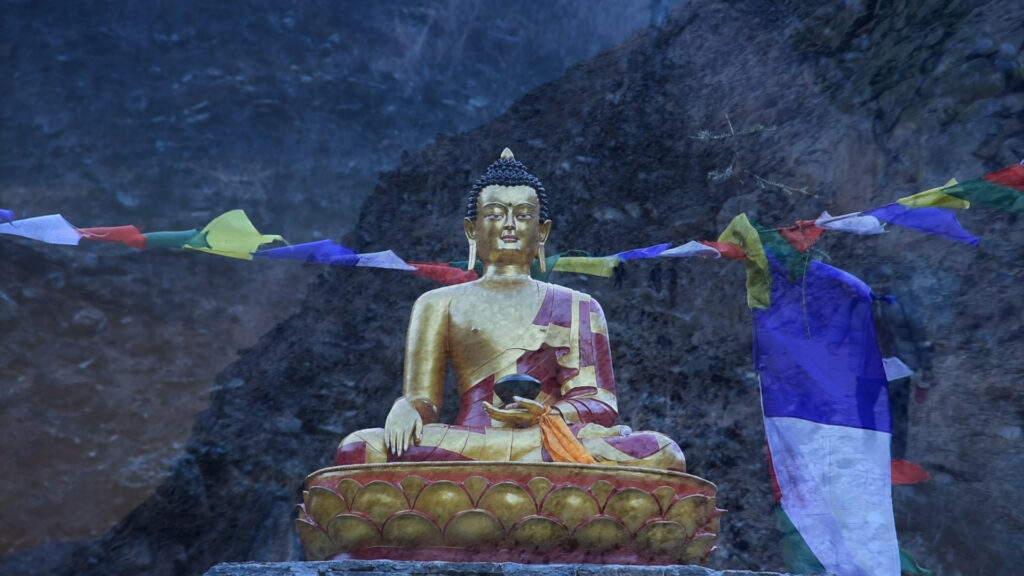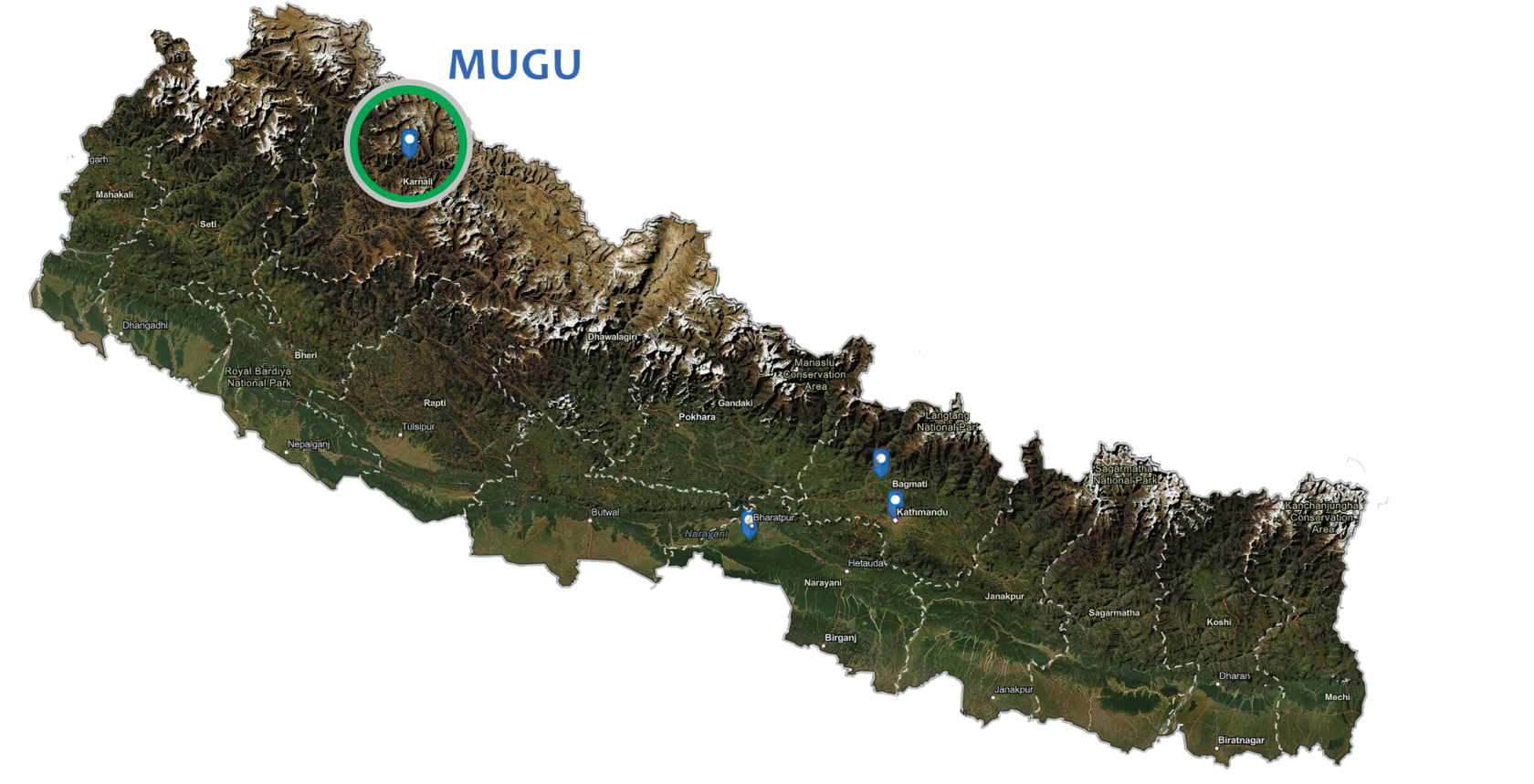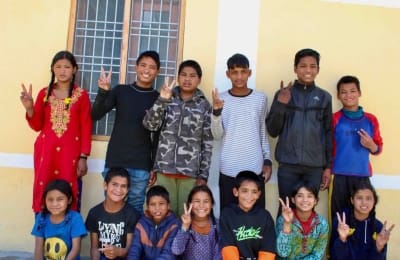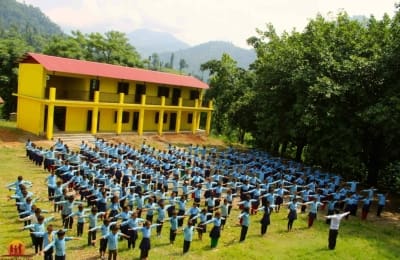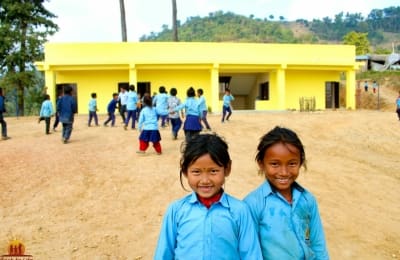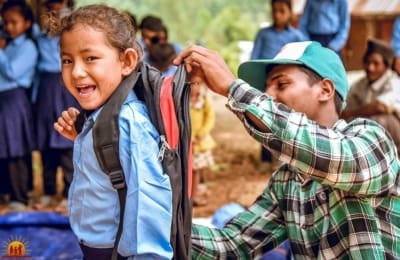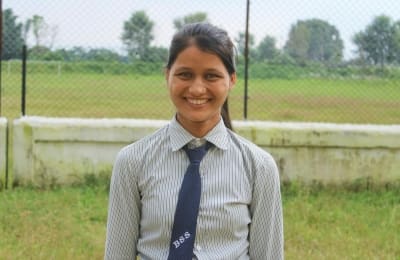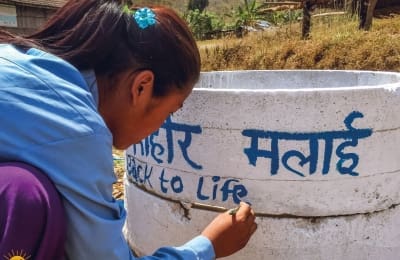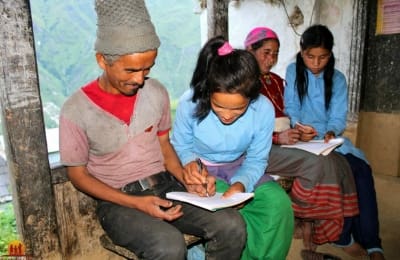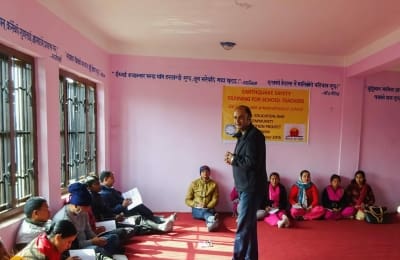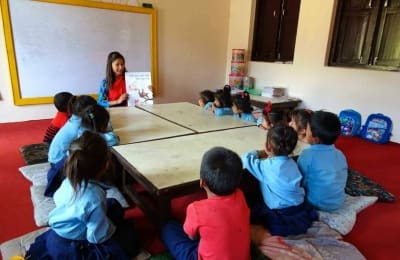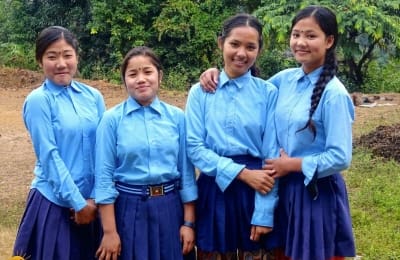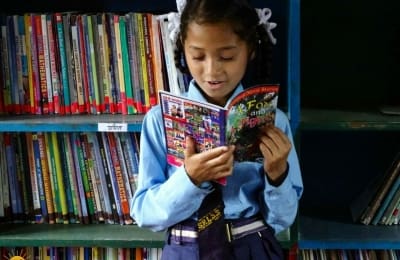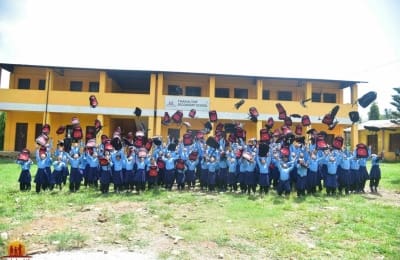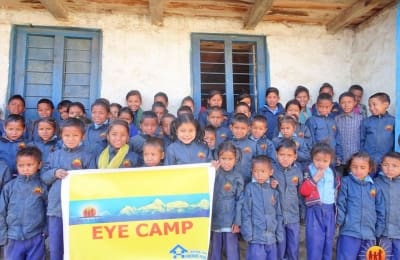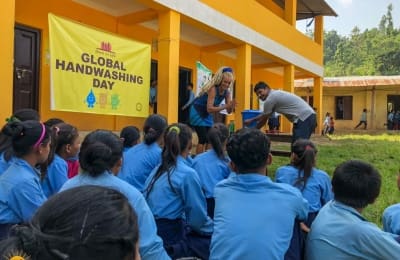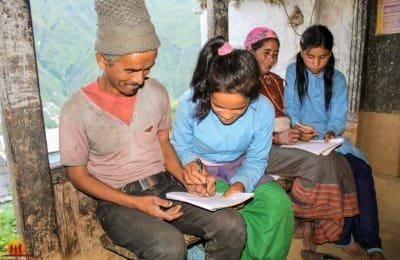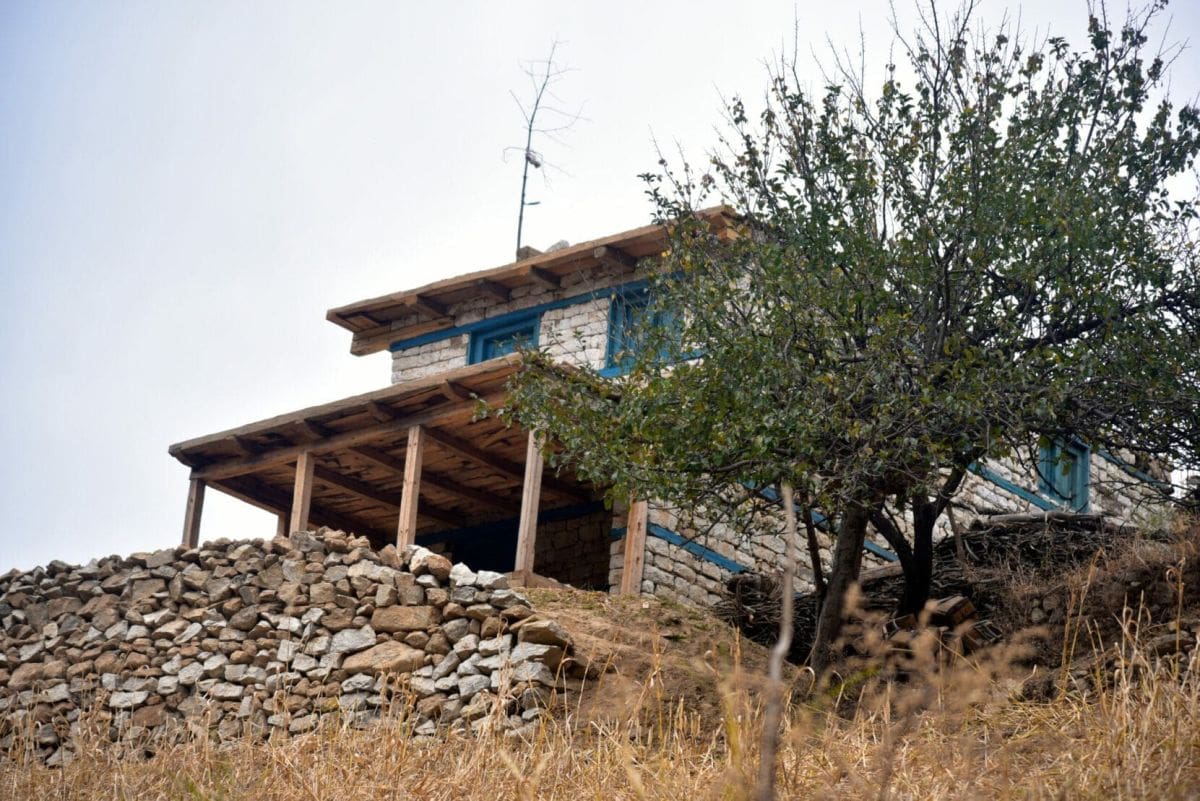
From emergency aid to our largest construction project
FIRE! When this call resounds in a remote mountain village, it is clear that it can quickly turn into a catastrophe. It was the same in May 2018 in Kimri, a mountain village in Mugu. A domestic fireplace for cooking turned into a major fire that completely destroyed 19 houses within one day, stole the families’ already meager belongings and burned irreplaceable artefacts of their religious lama culture – some centuries old. 112 people – old people, young people, parents, children, from now on they were all faced with nothing. One month before the start of the monsoons, all belongings, clothing, all food supplies and seeds for the next sowing, as well as everything that had been laboriously saved, were just ashes.
Lack of water at an altitude of 3445 m
The Buddhist mountain village Kimri in Mugu is picturesquely situated at 3445 m altitude. It is framed by four-thousand-meter peaks, which make the way there very difficult. The area is sparsely populated and the nearest village is a 3-hour walk away. There are no roads, no power grid, life in the mountains of Nepal is rudimentary and hard. The people have lived here for generations, they own the land and they farm and raise cattle. There is a shortage of water in the villages of Mugu, and there is almost nowhere running water from the tap. The water required for the household and for washing has to be laboriously carried from the nearest water source every day and it can be hours away. This is everyday life in Kimri too, so there wasn’t enough water on site to put out the fire.
Immediate aid is not enough
The terrible pictures reached us in Kathmandu and we immediately agreed that we had to help here. At first, we could not see that this would become a very special challenge for us and our largest construction project. It quickly became apparent that the people with our emergency aid and the help for self-help that we normally offer would not be of sufficient help.
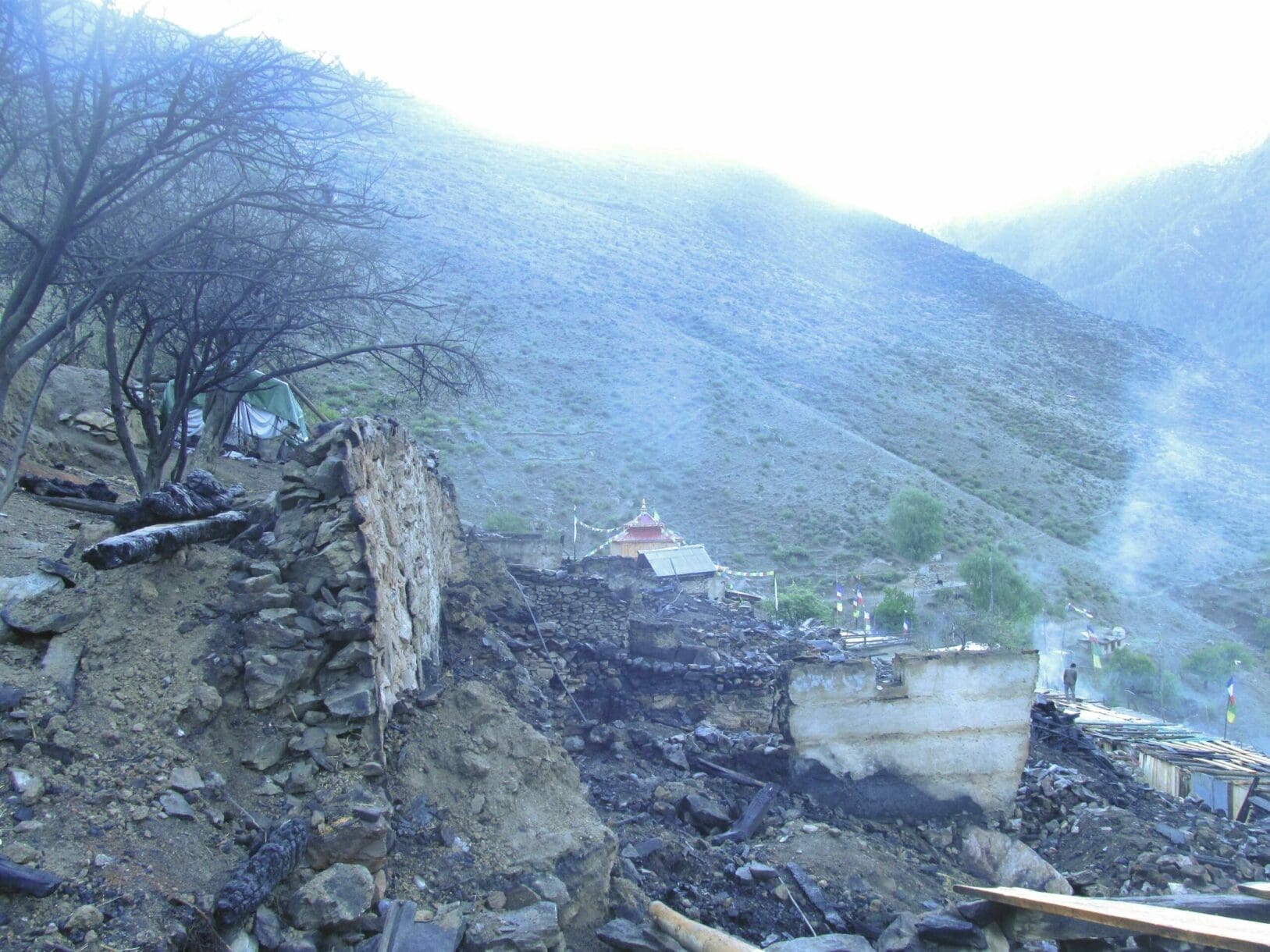

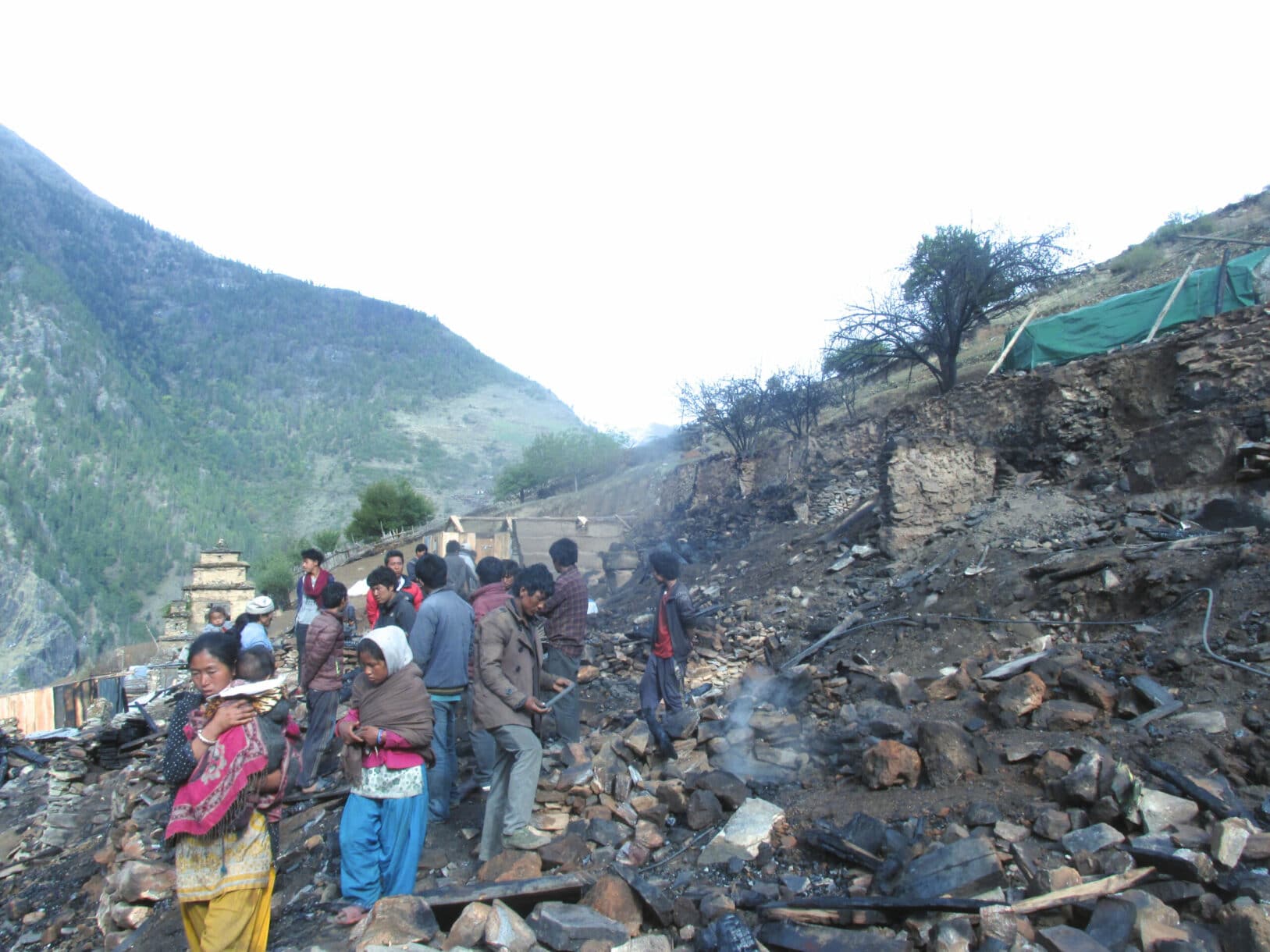

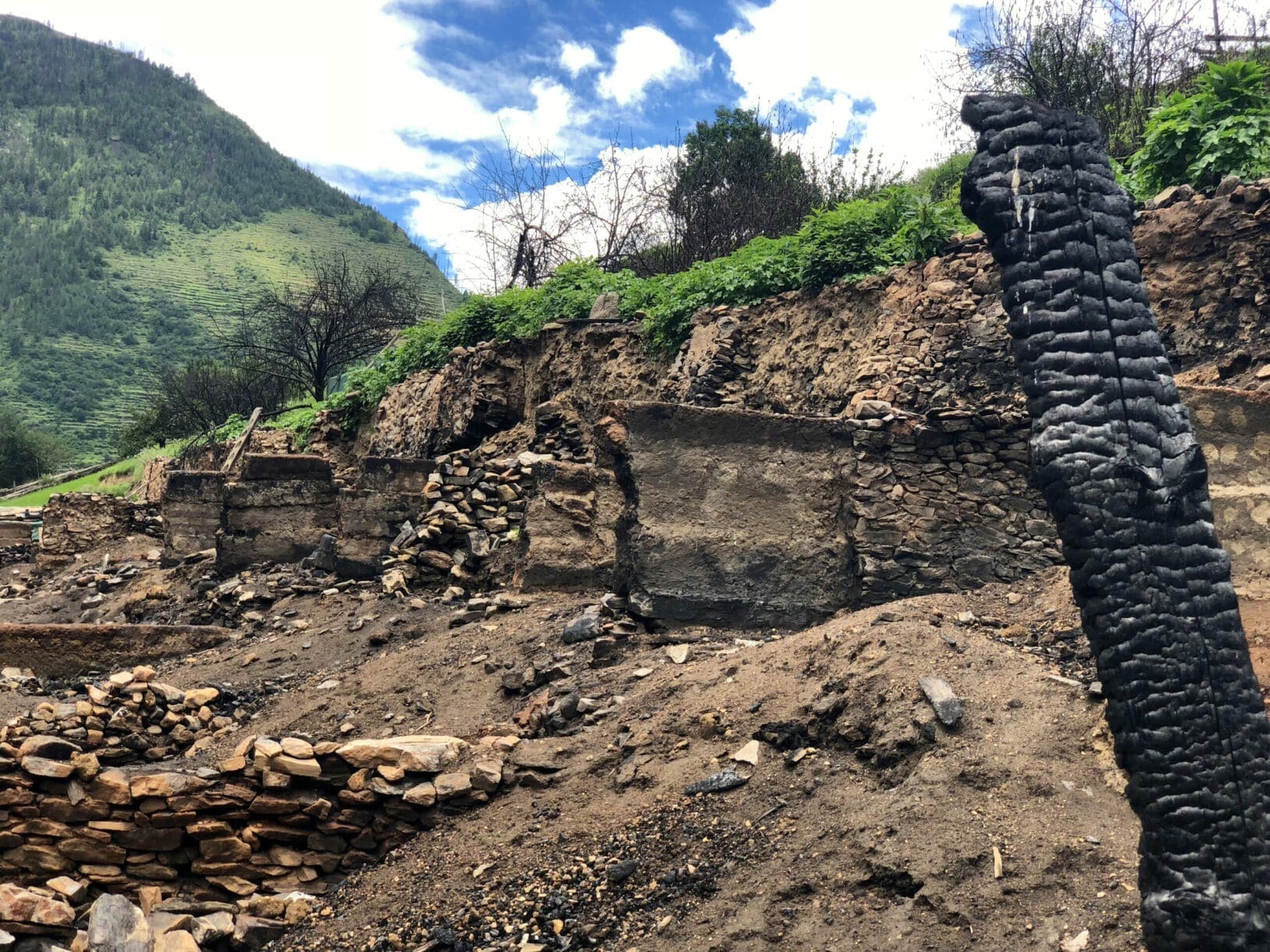

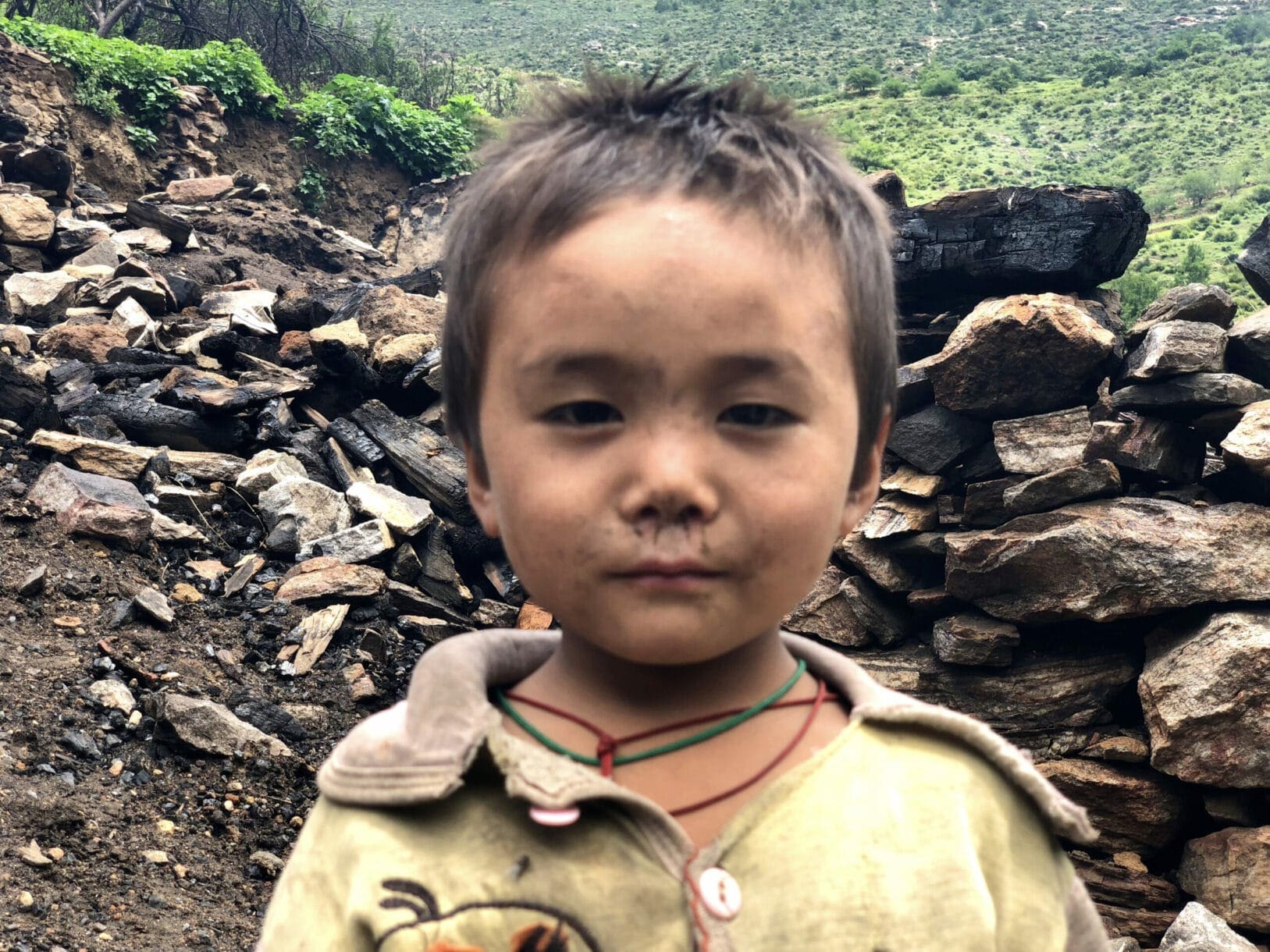

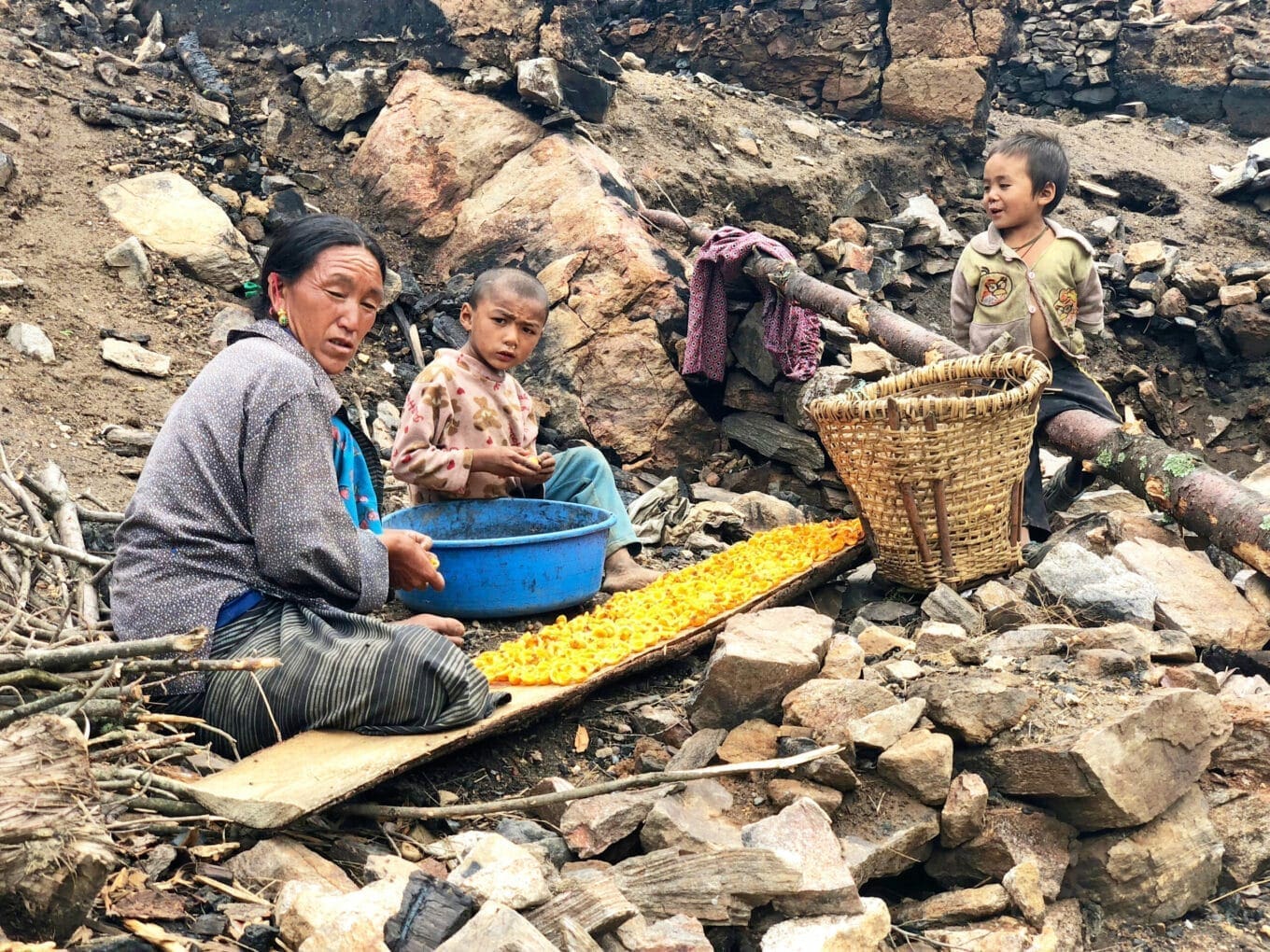

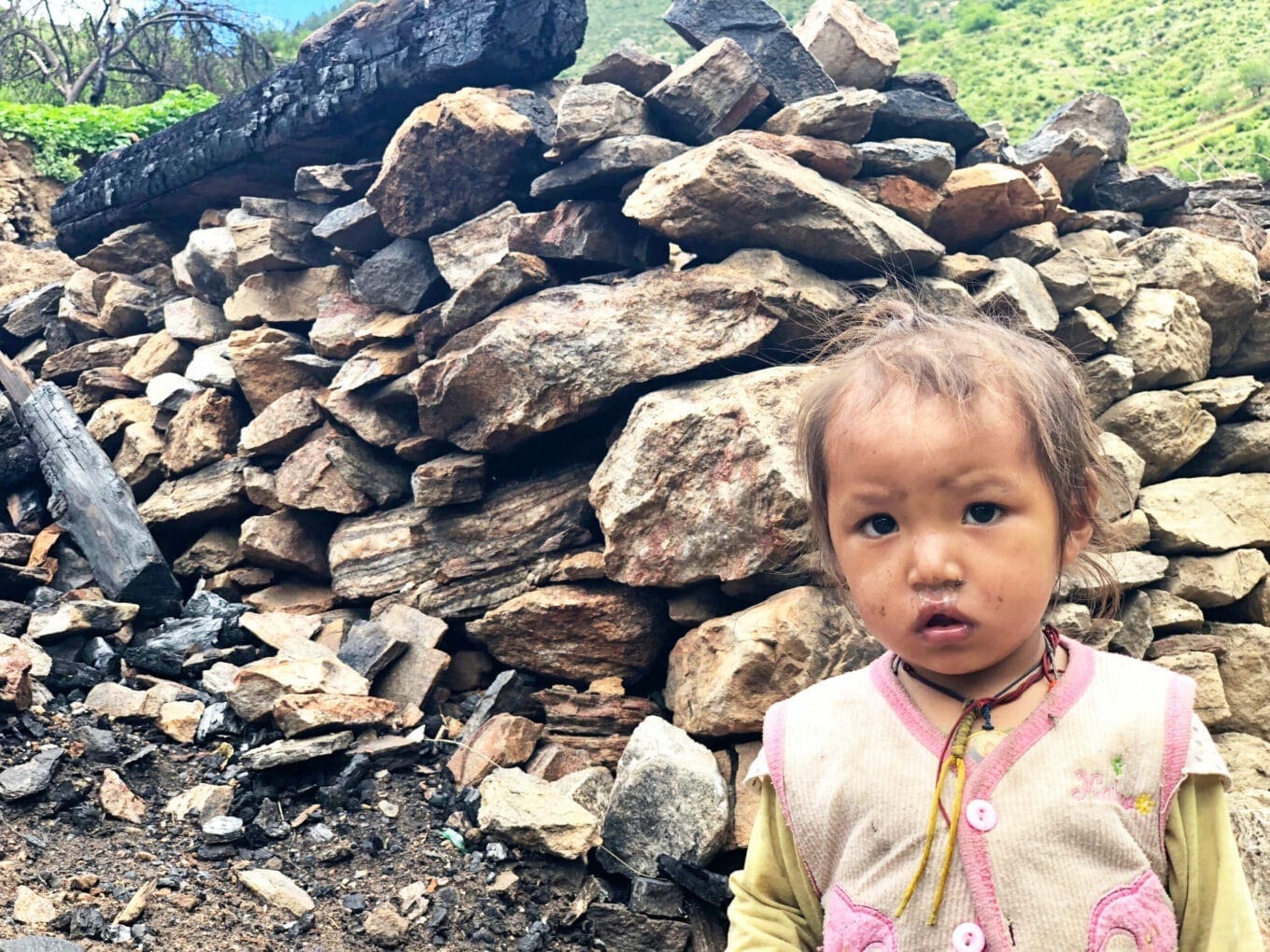

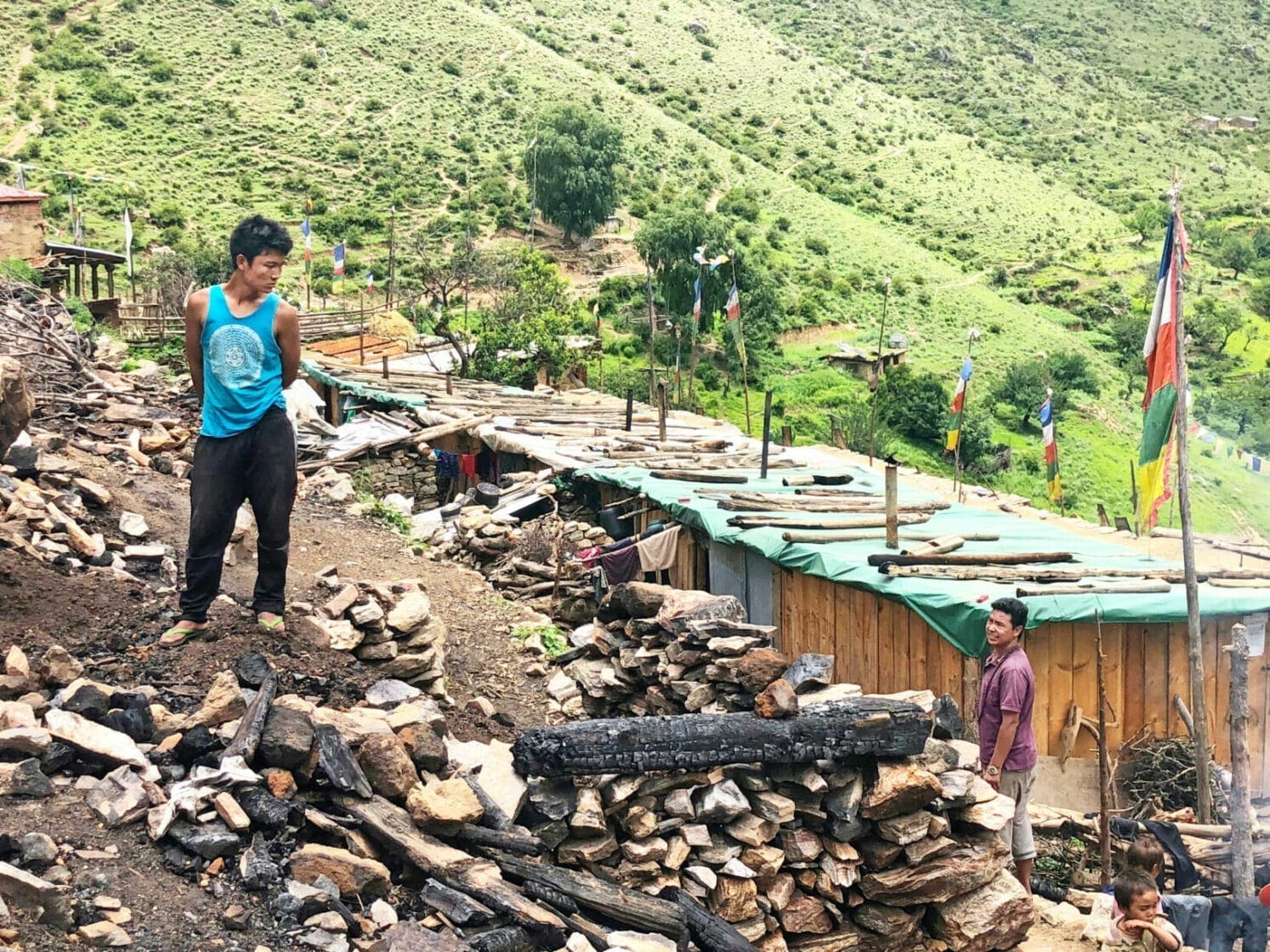

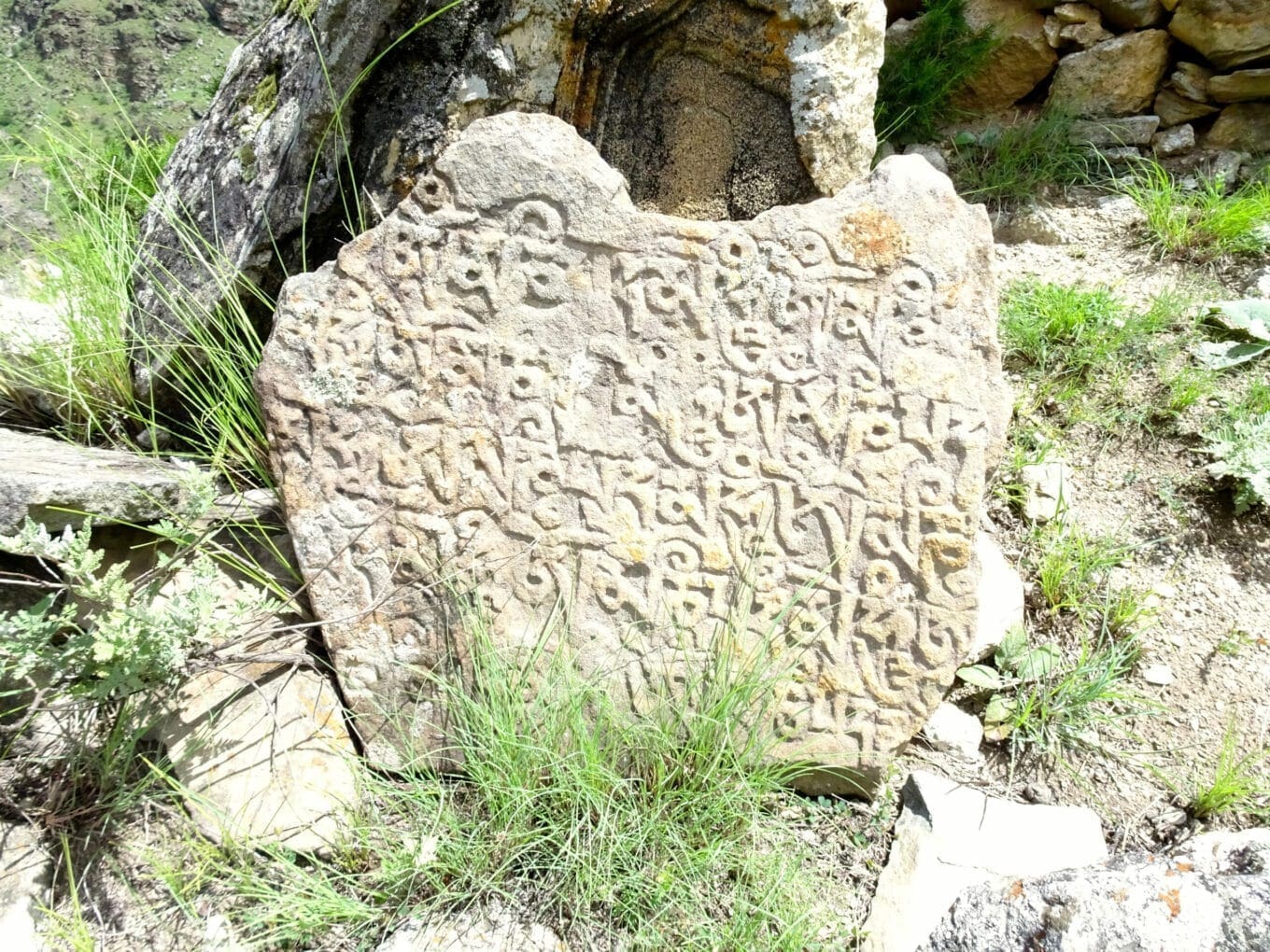

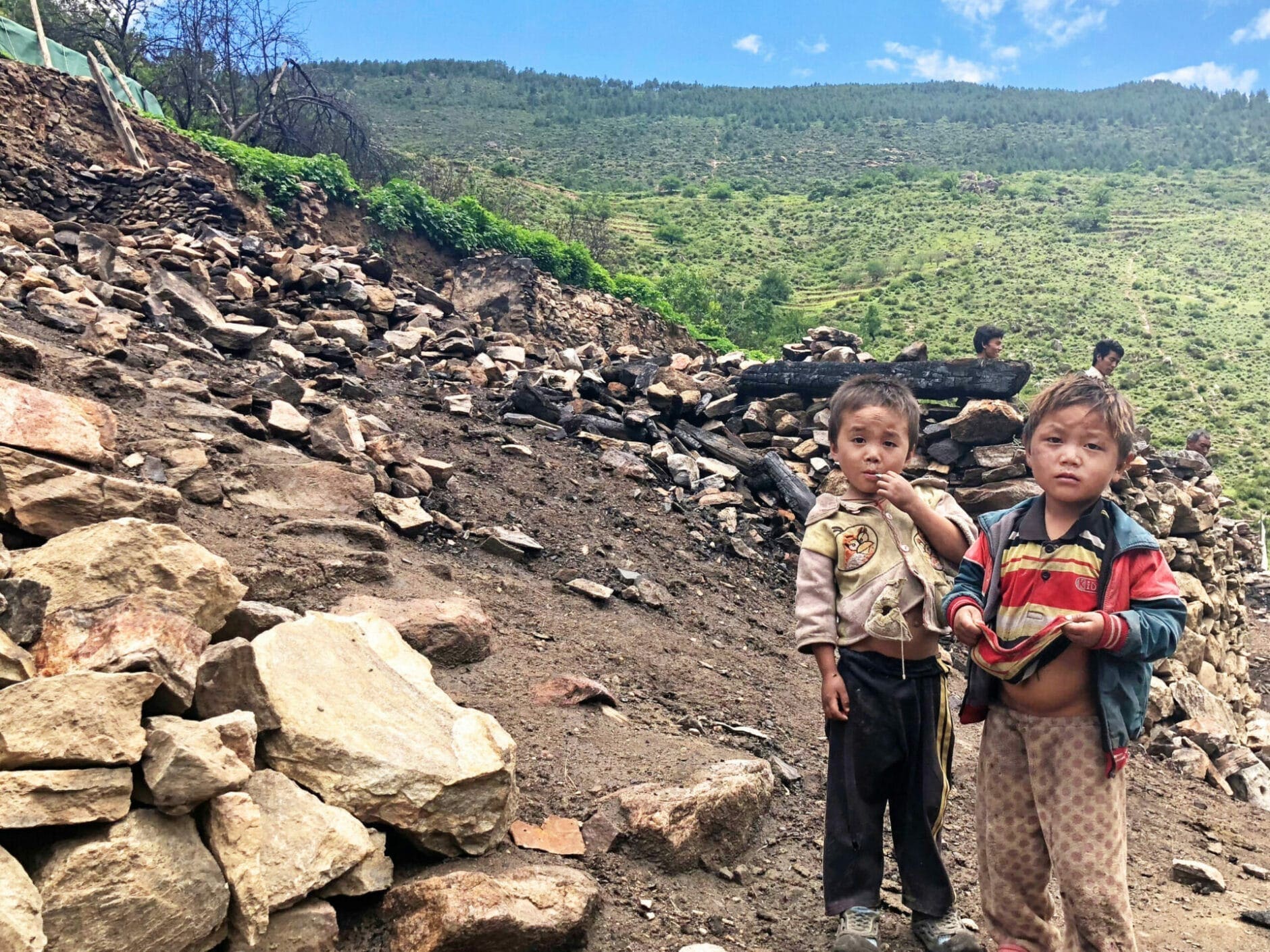

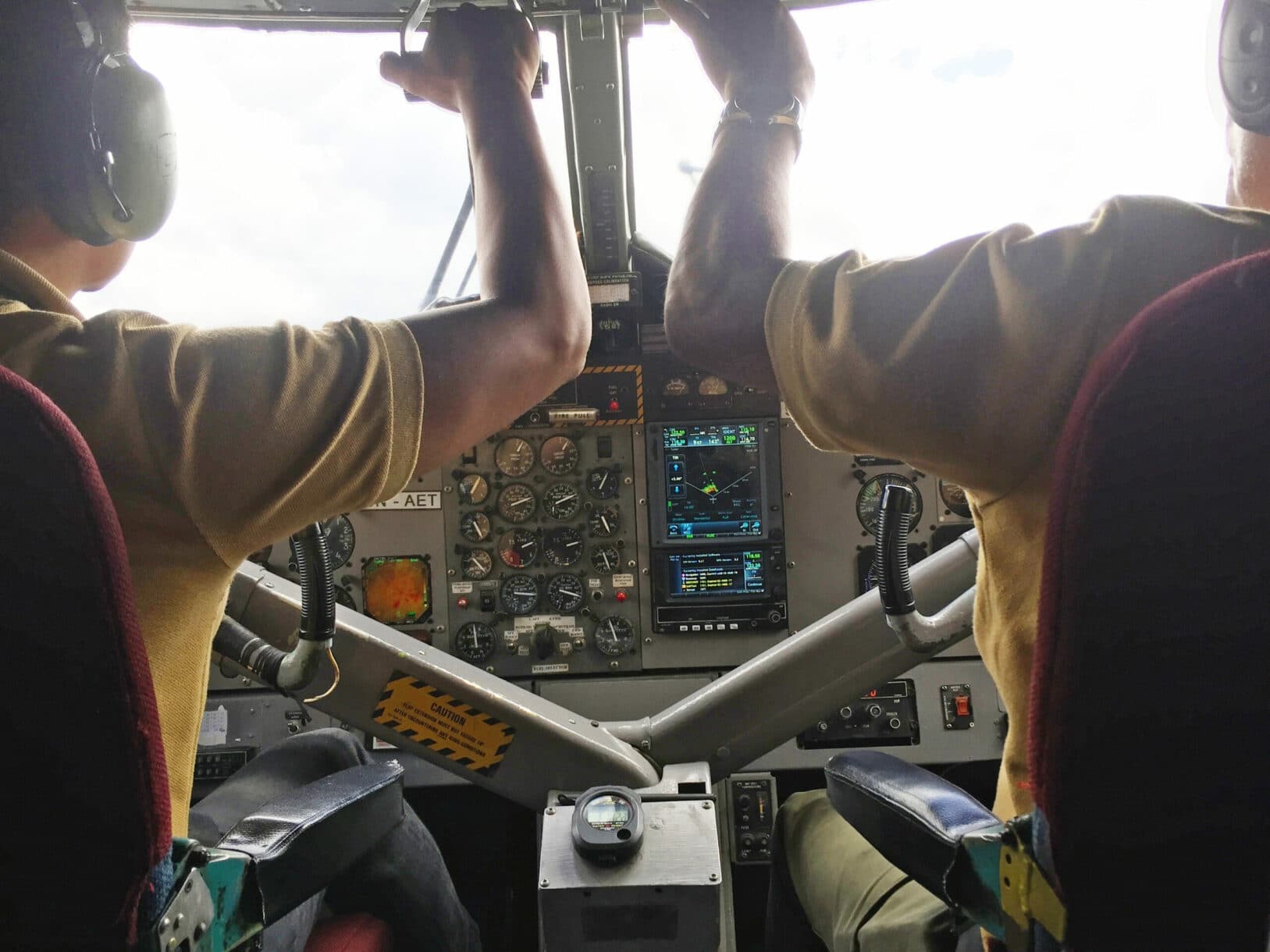

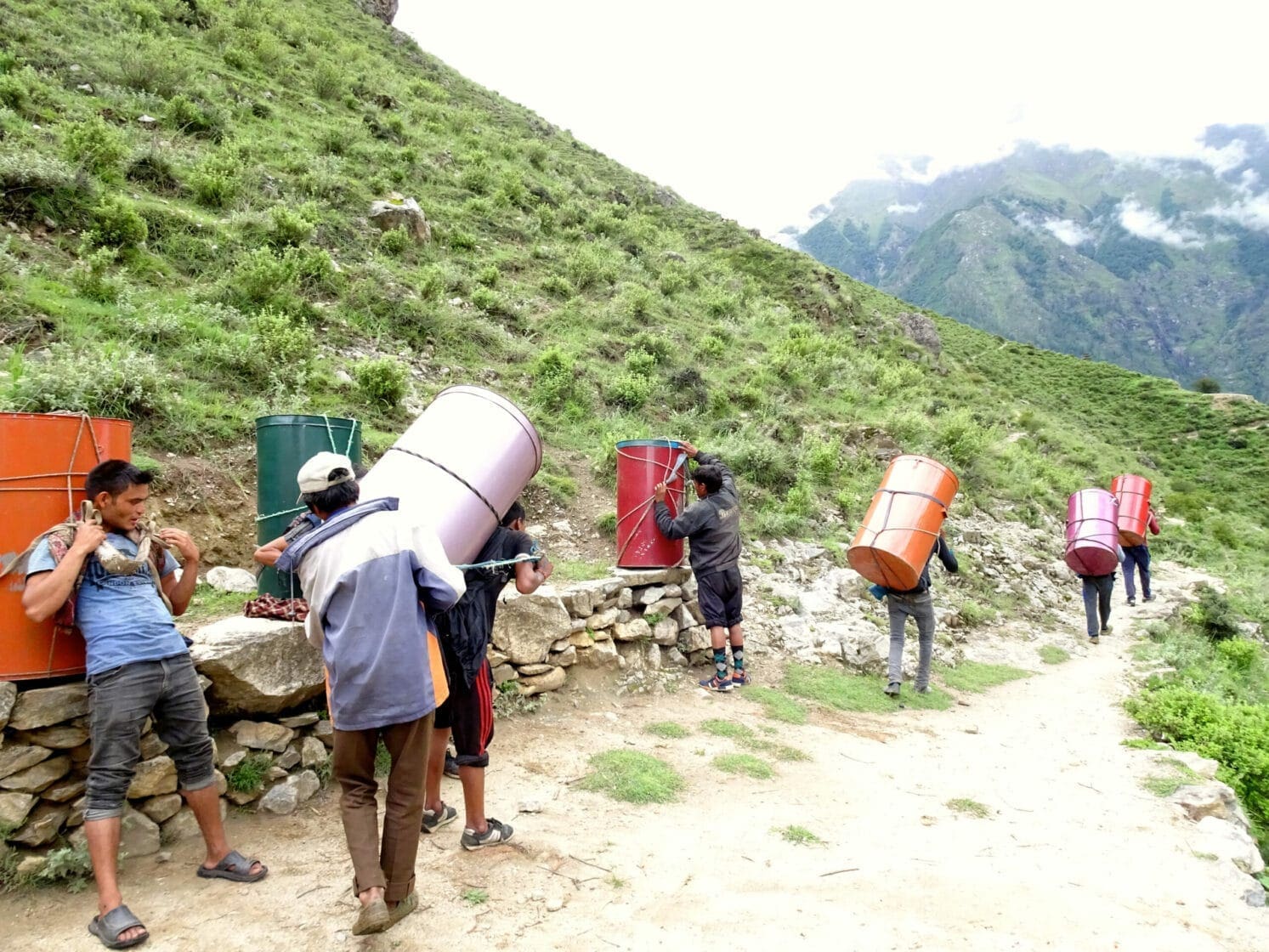

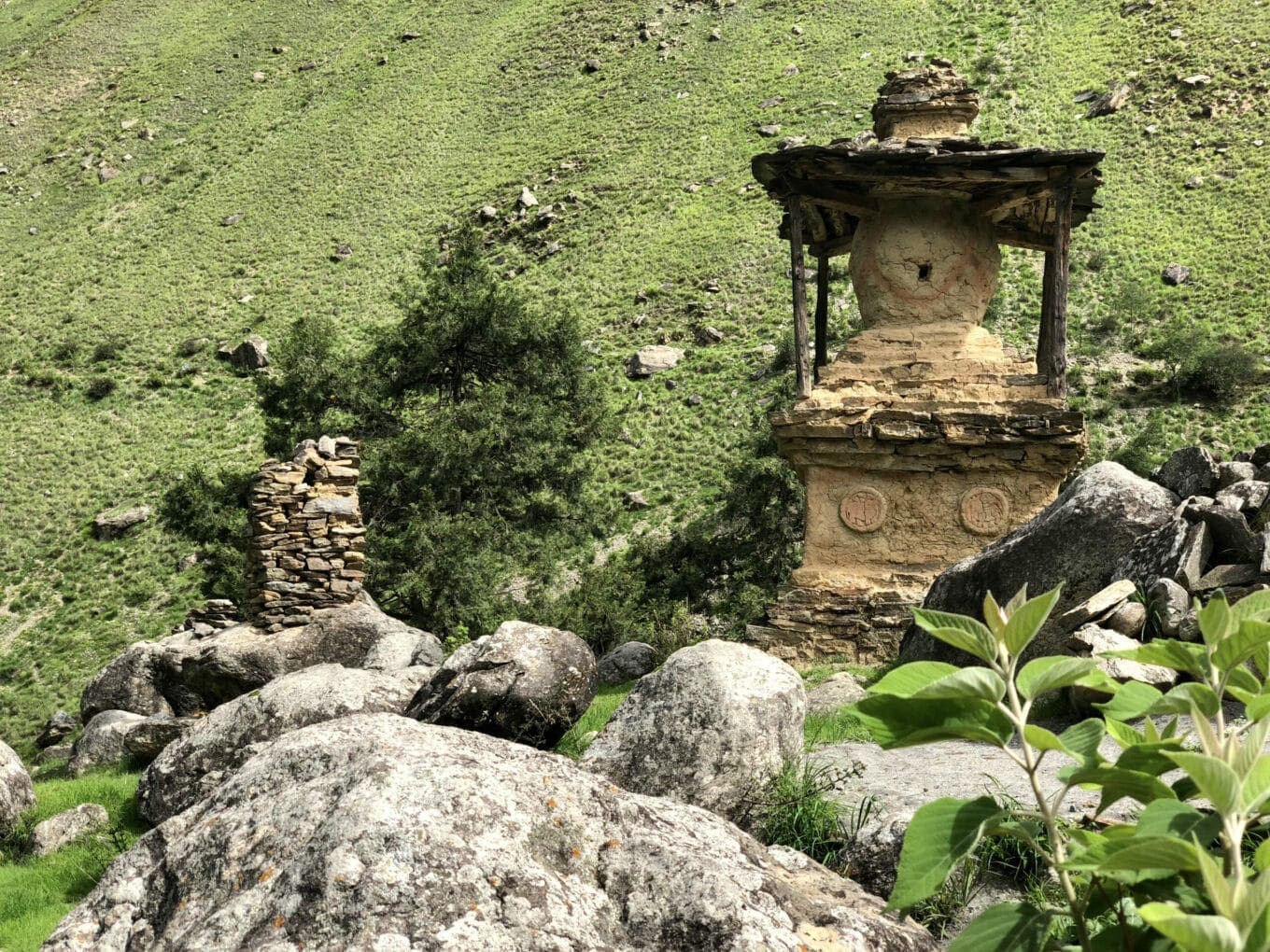

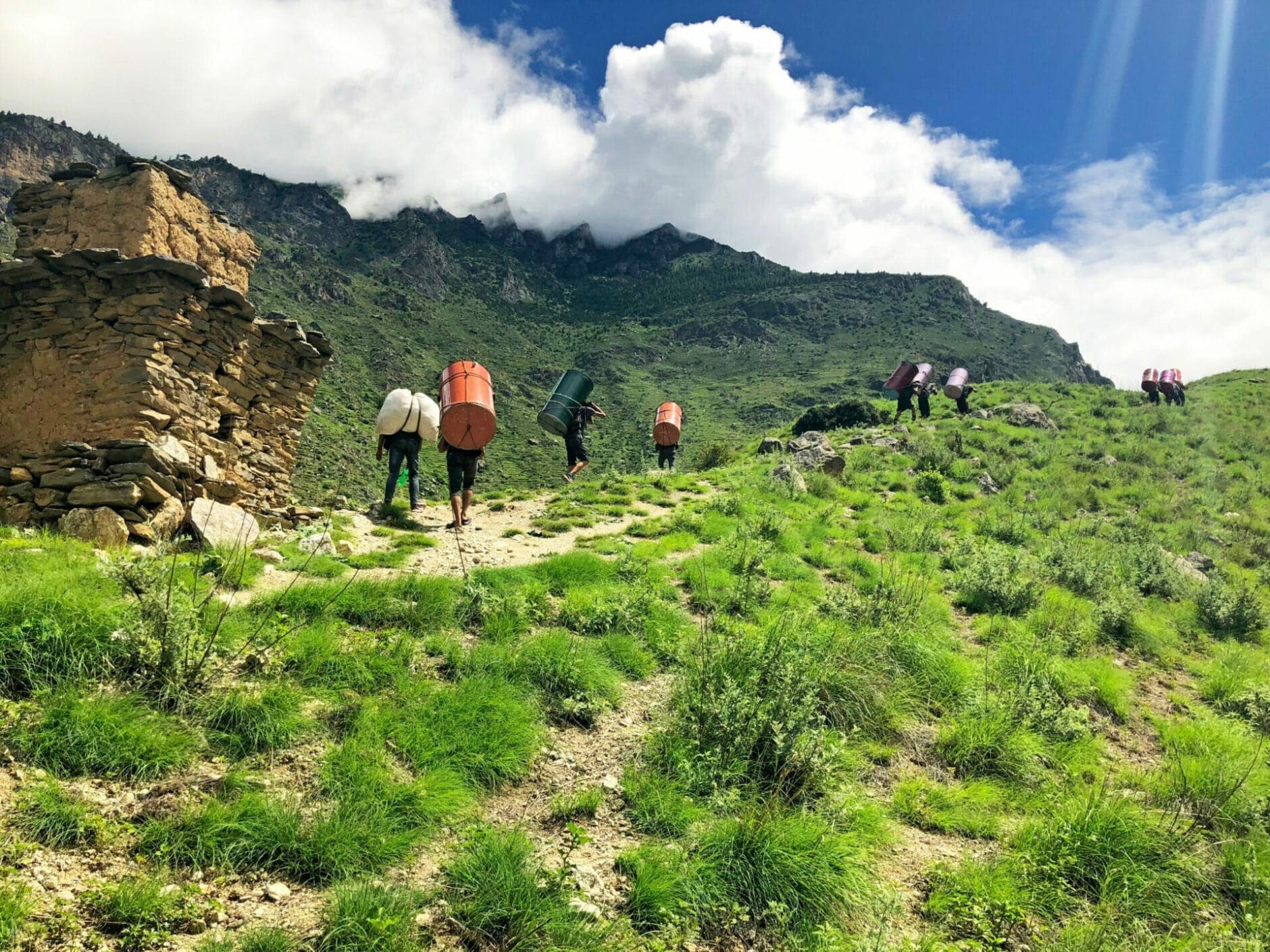

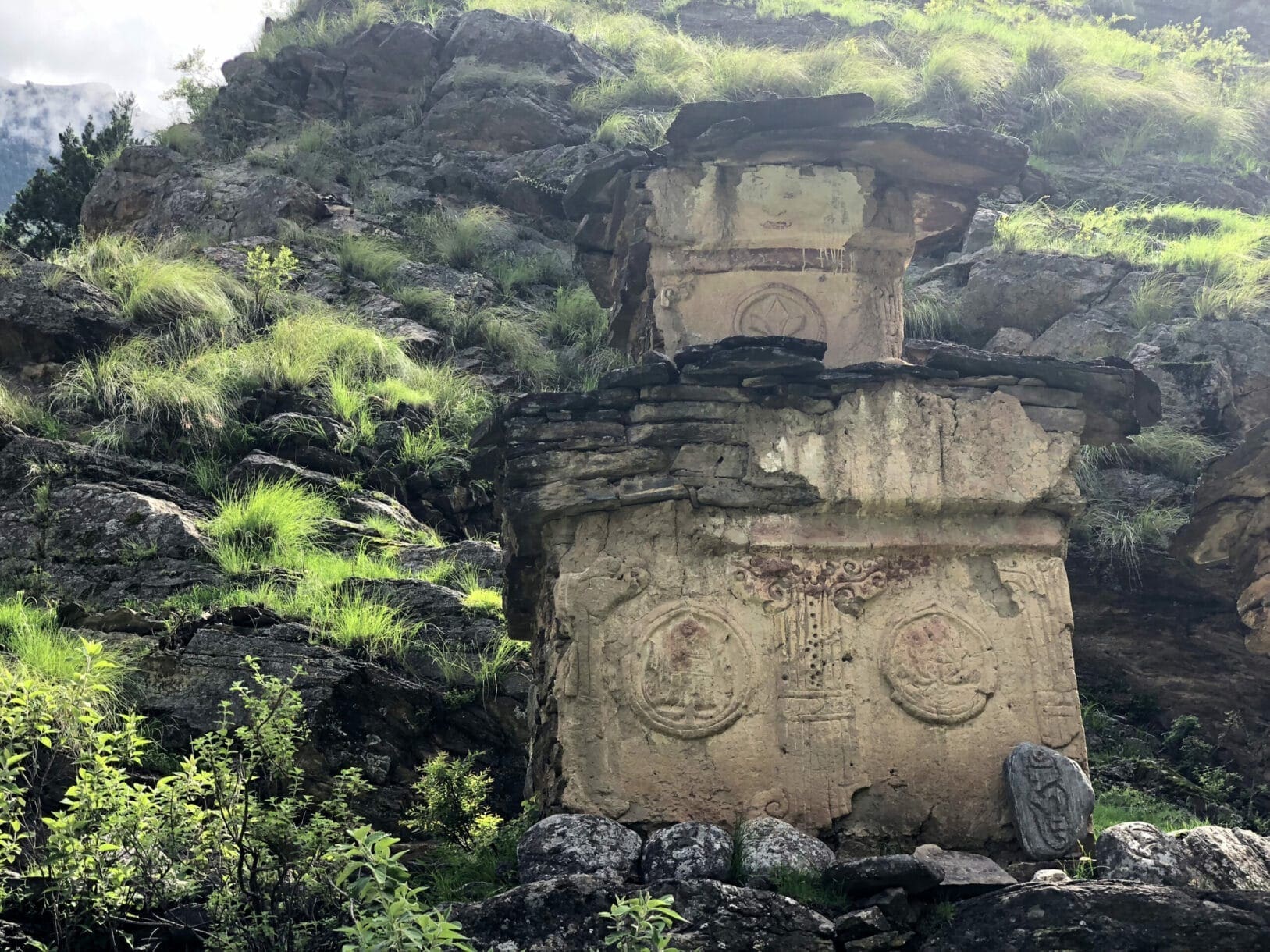

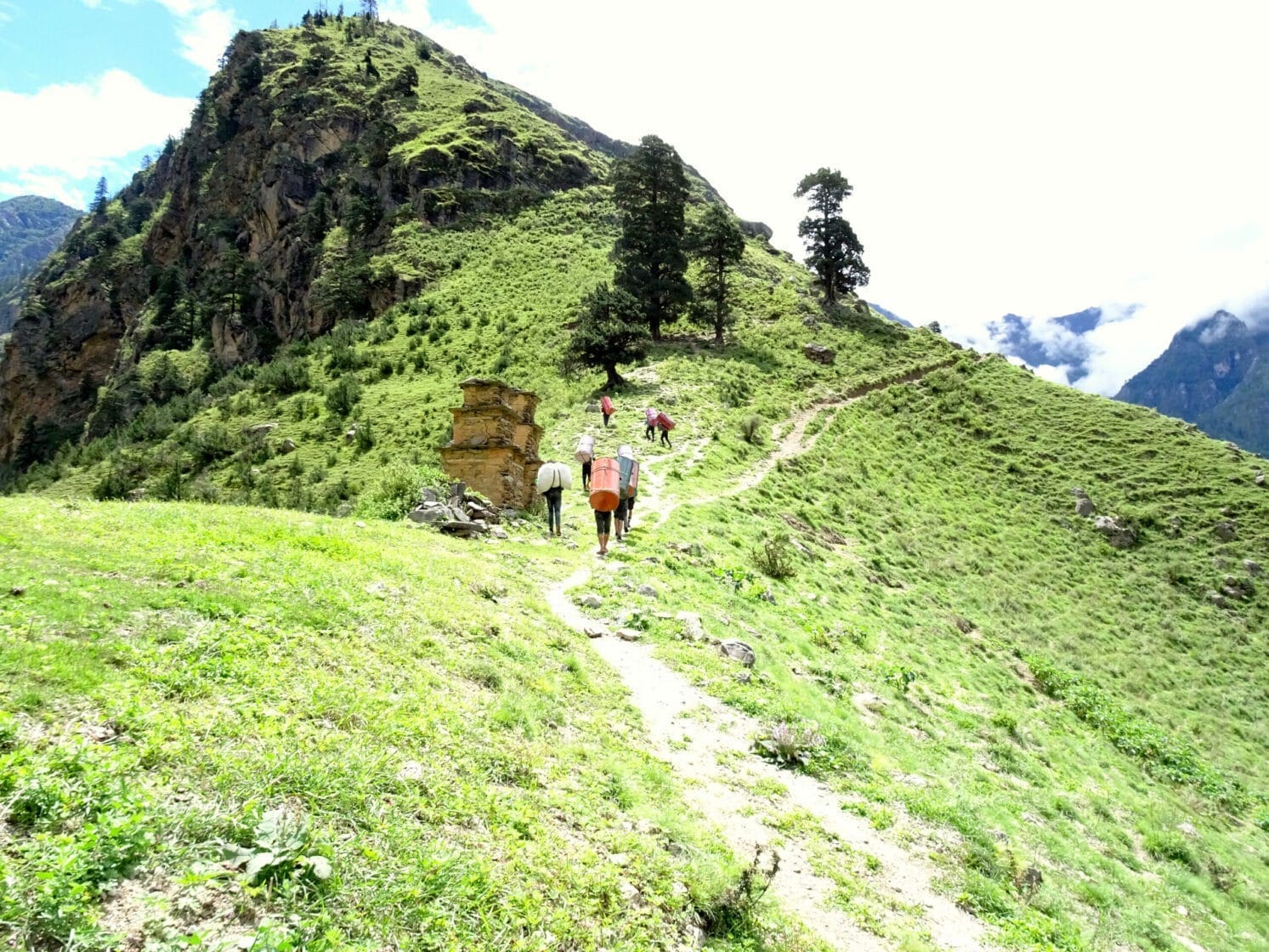

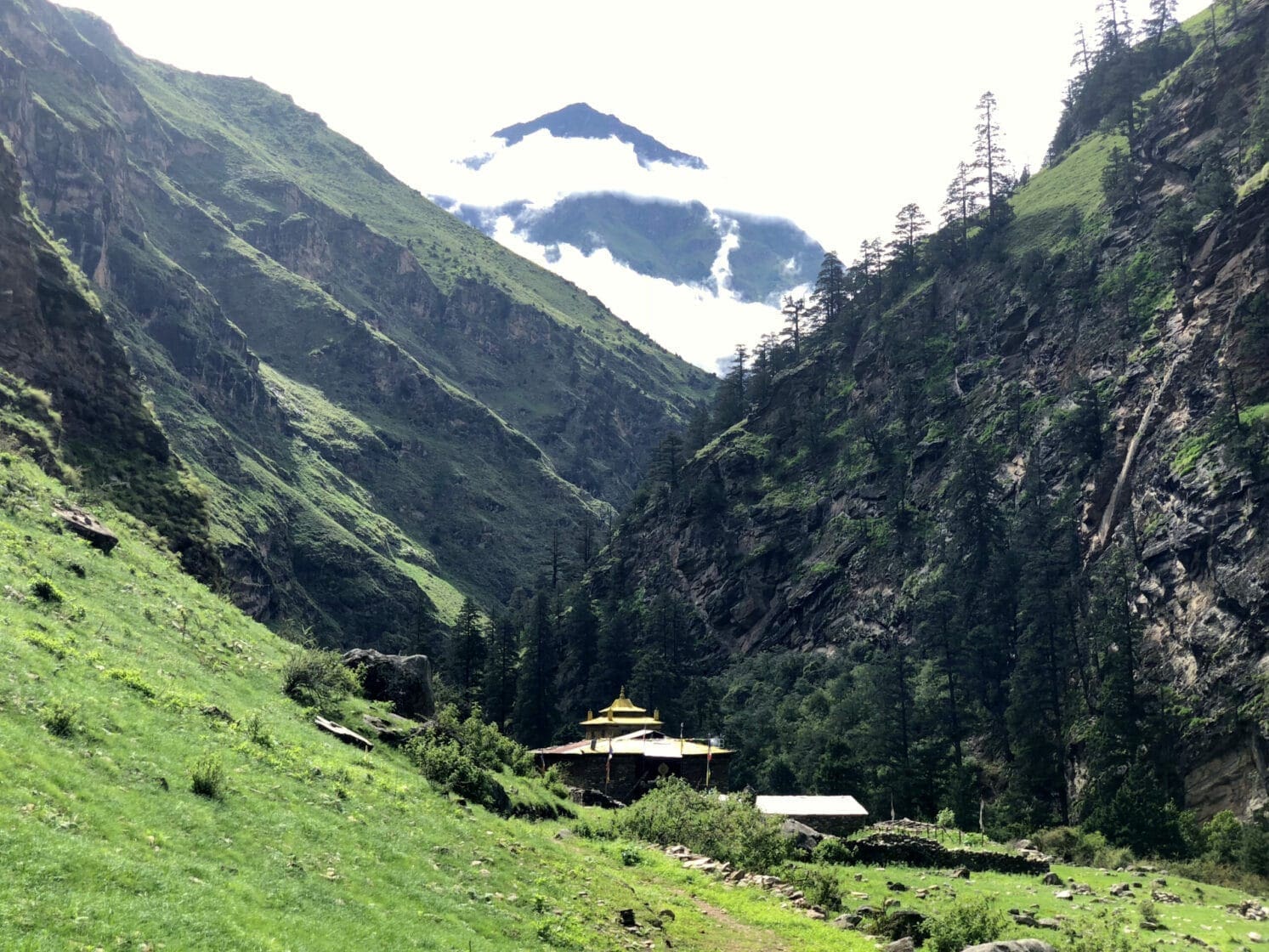

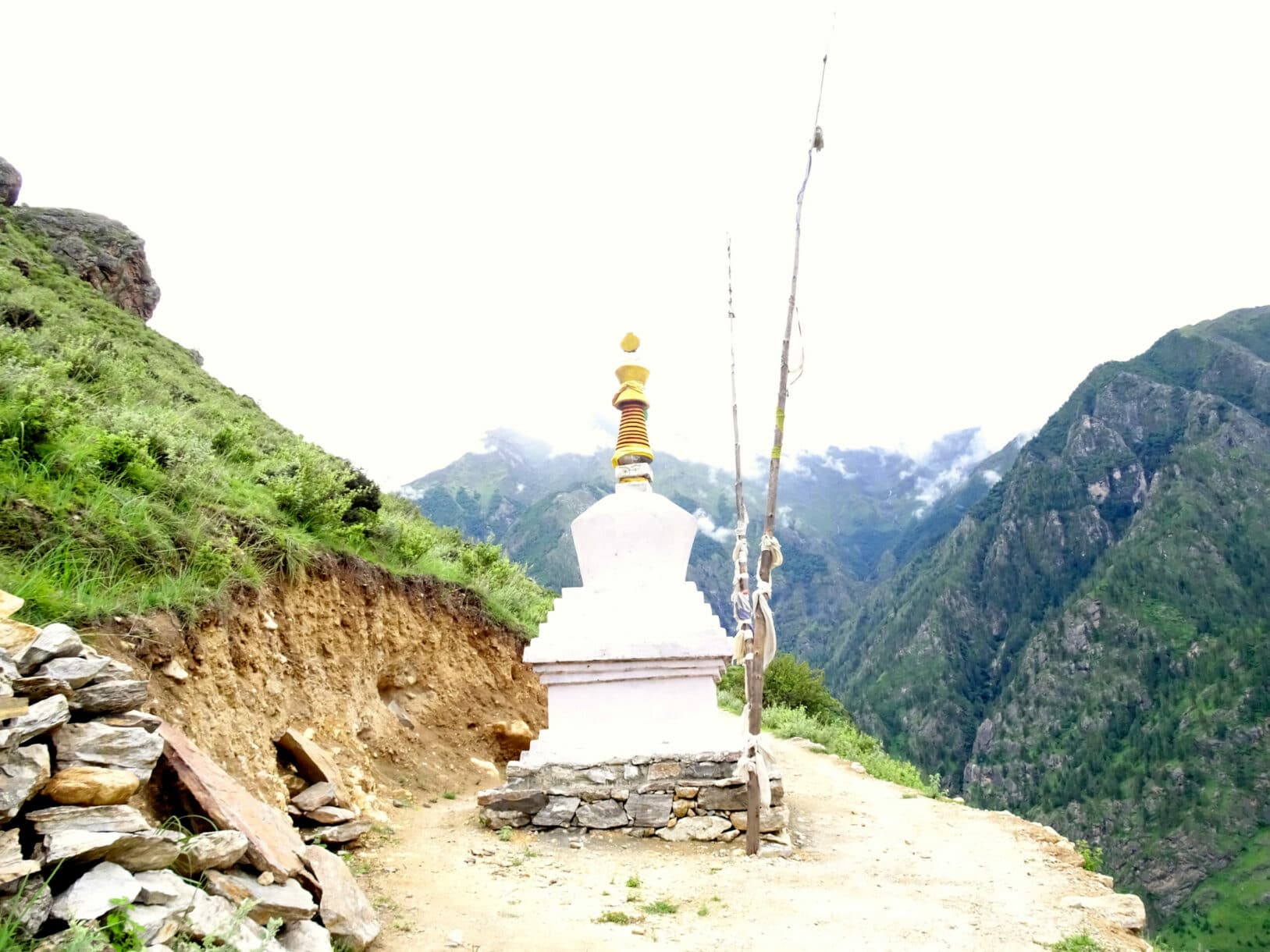

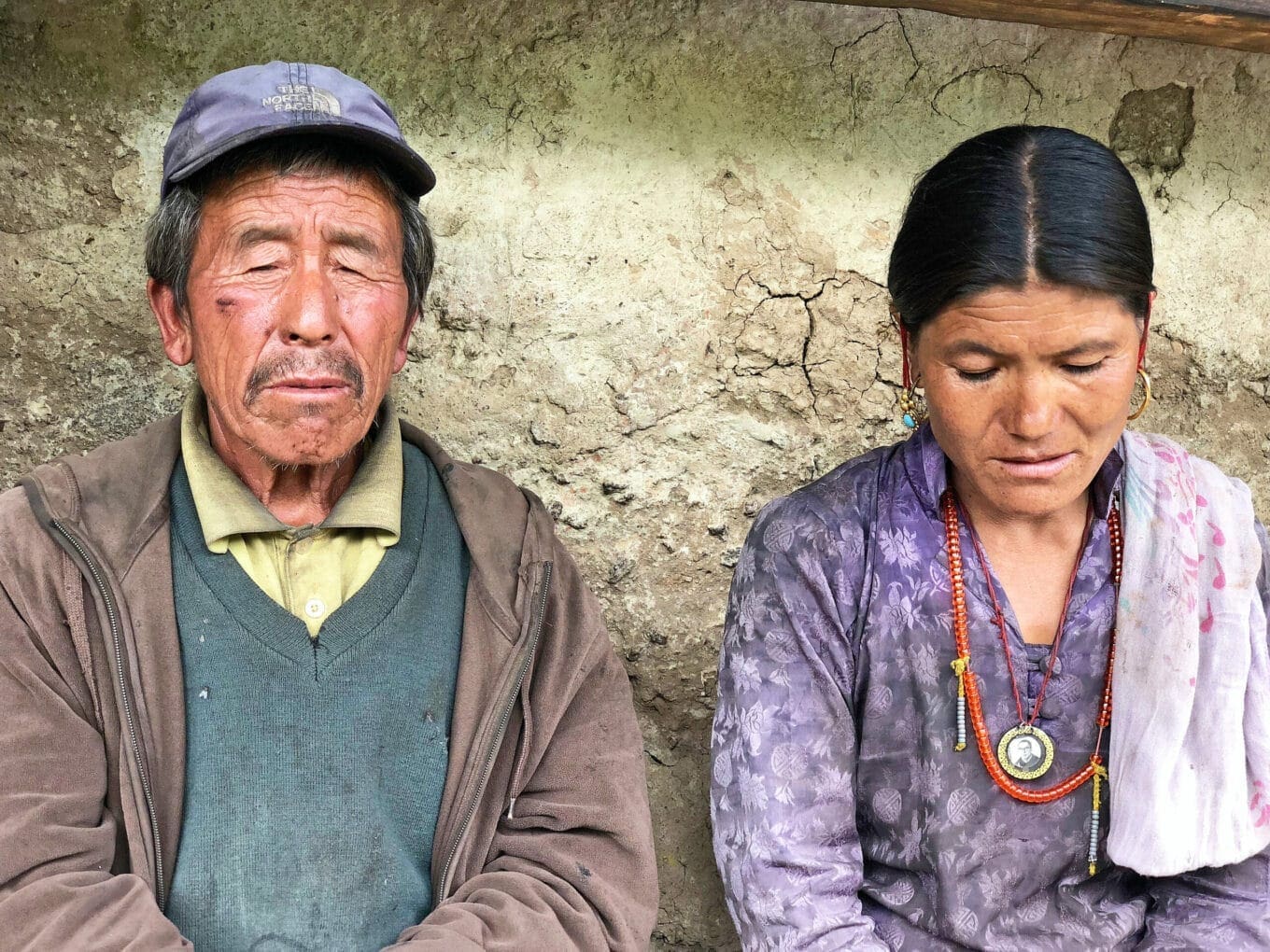

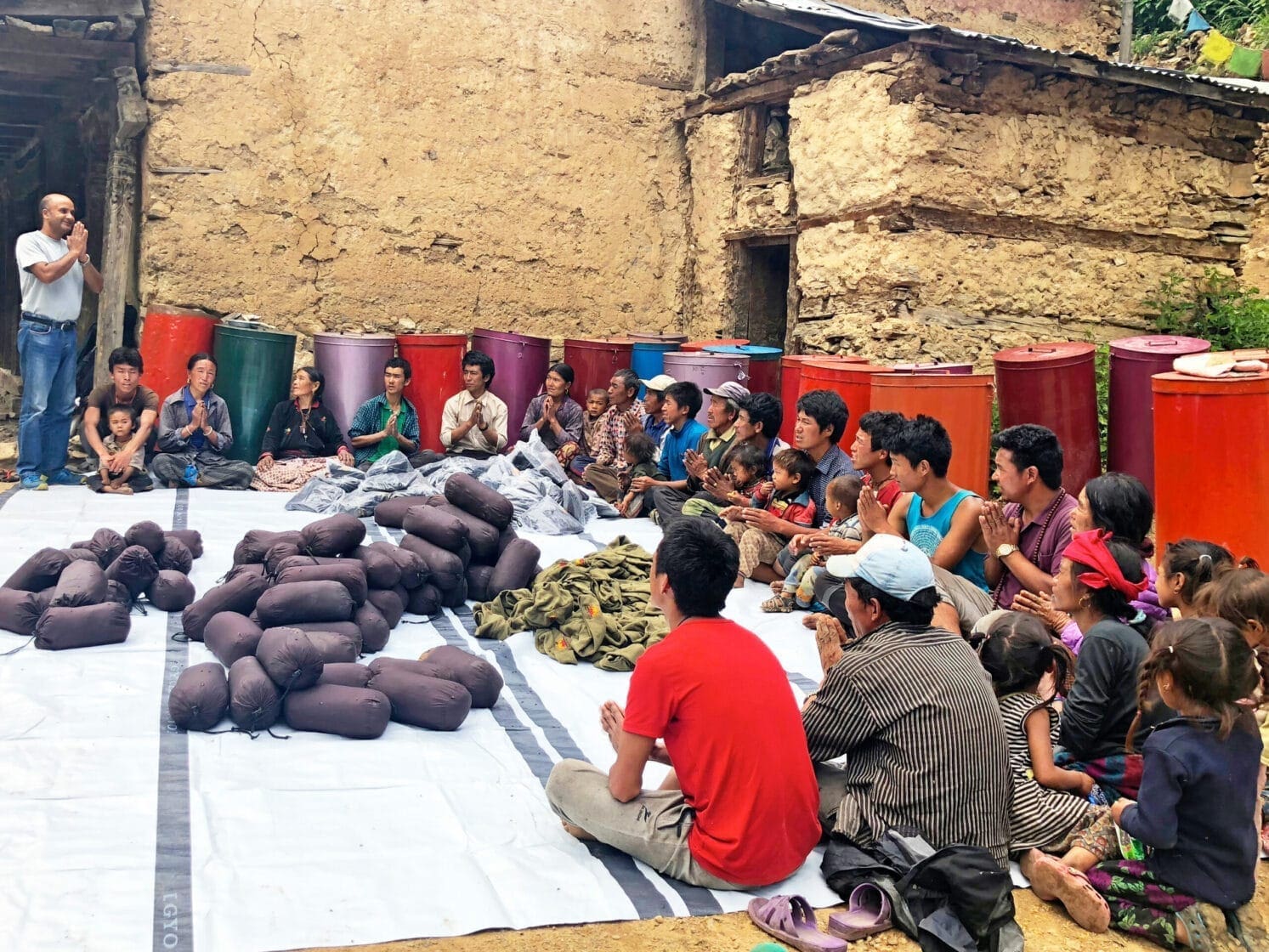

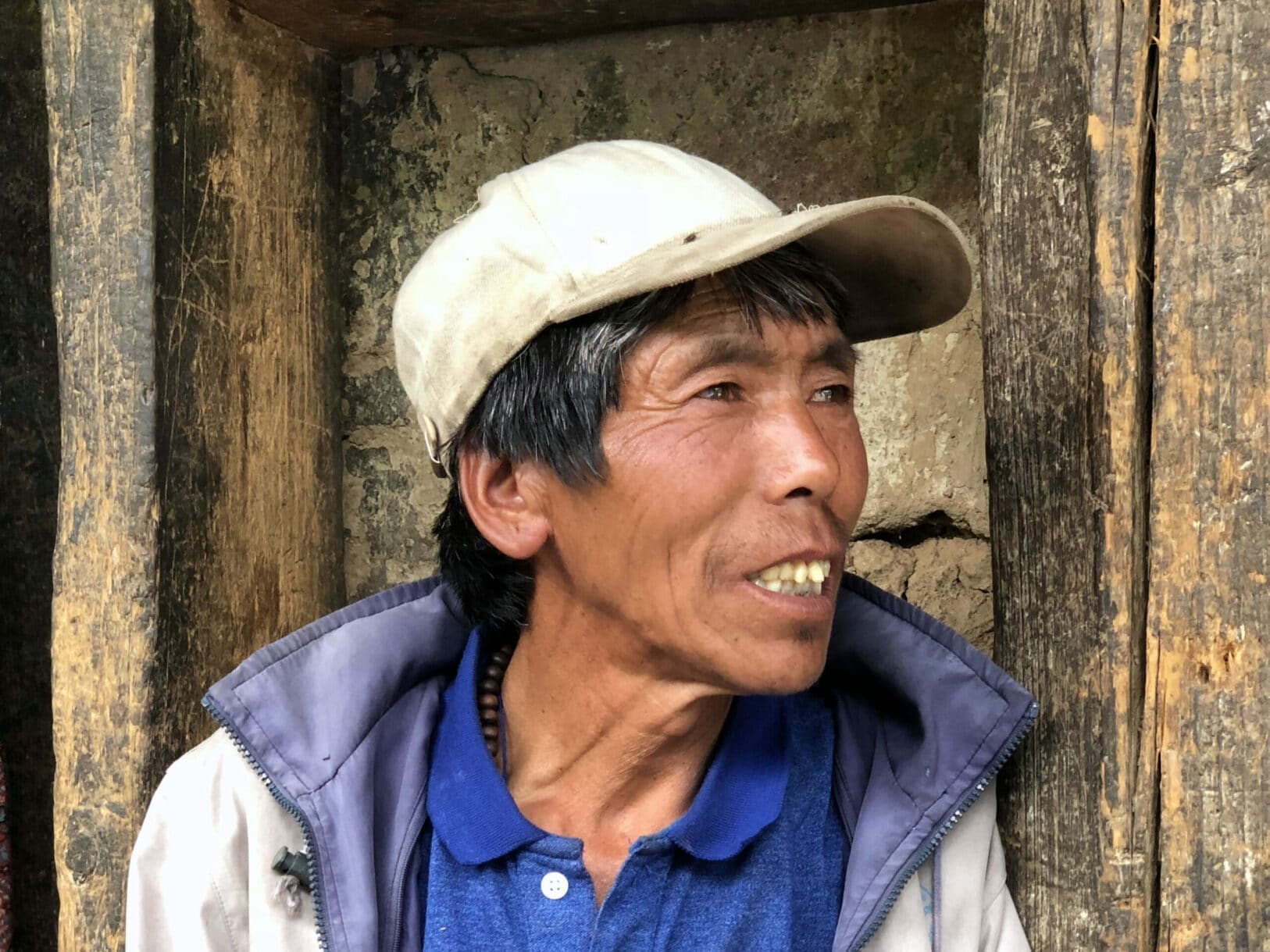

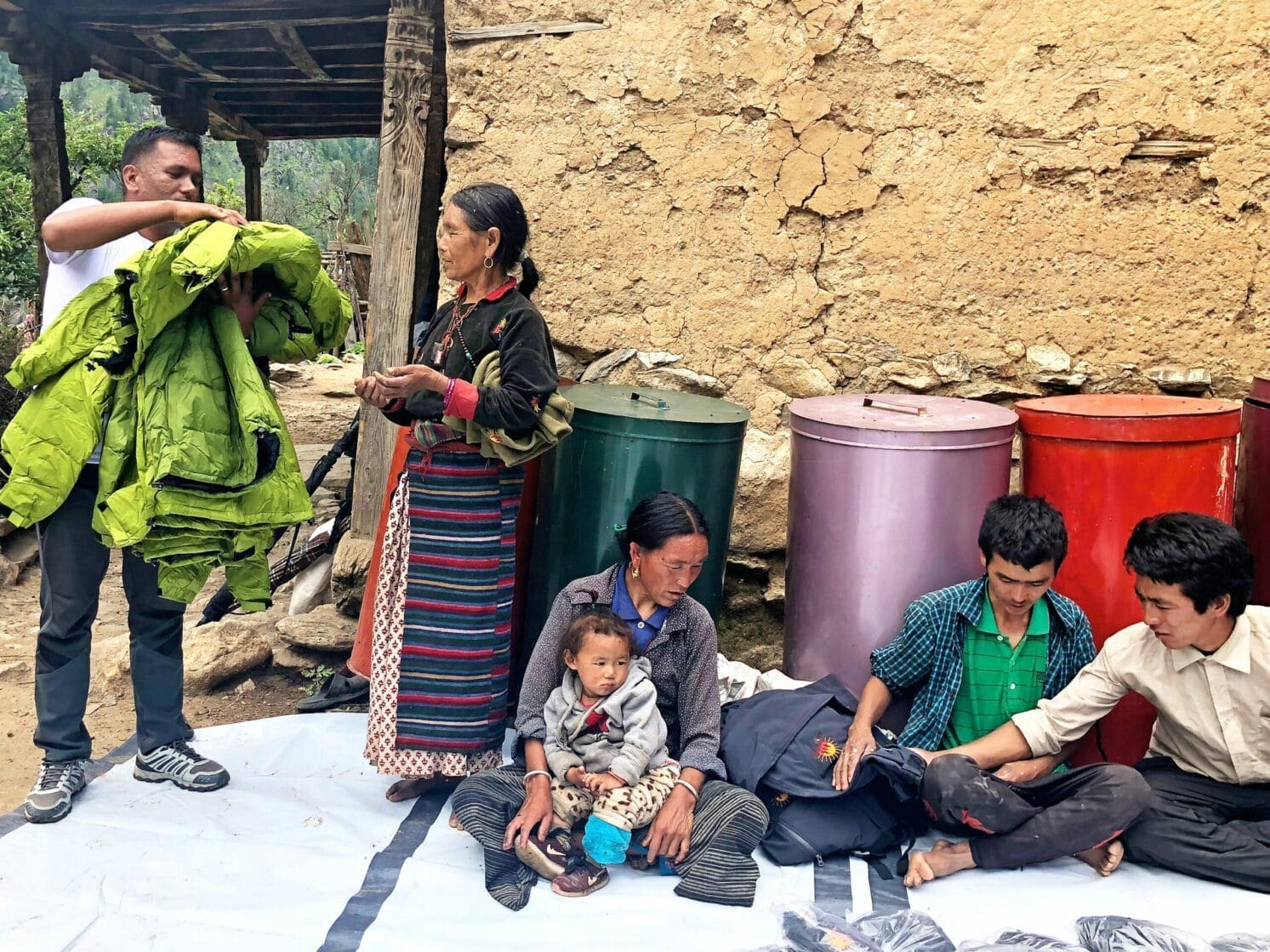

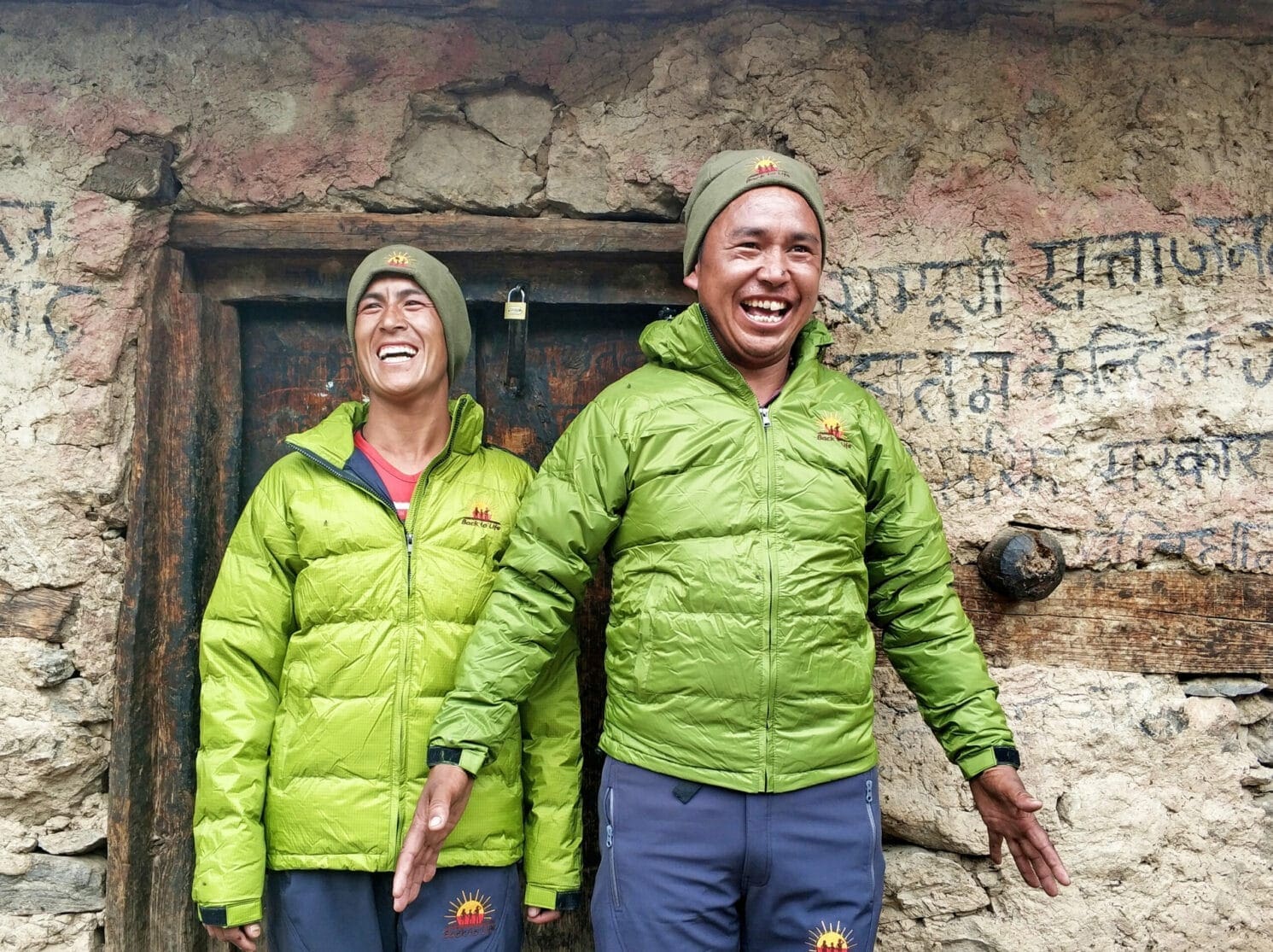

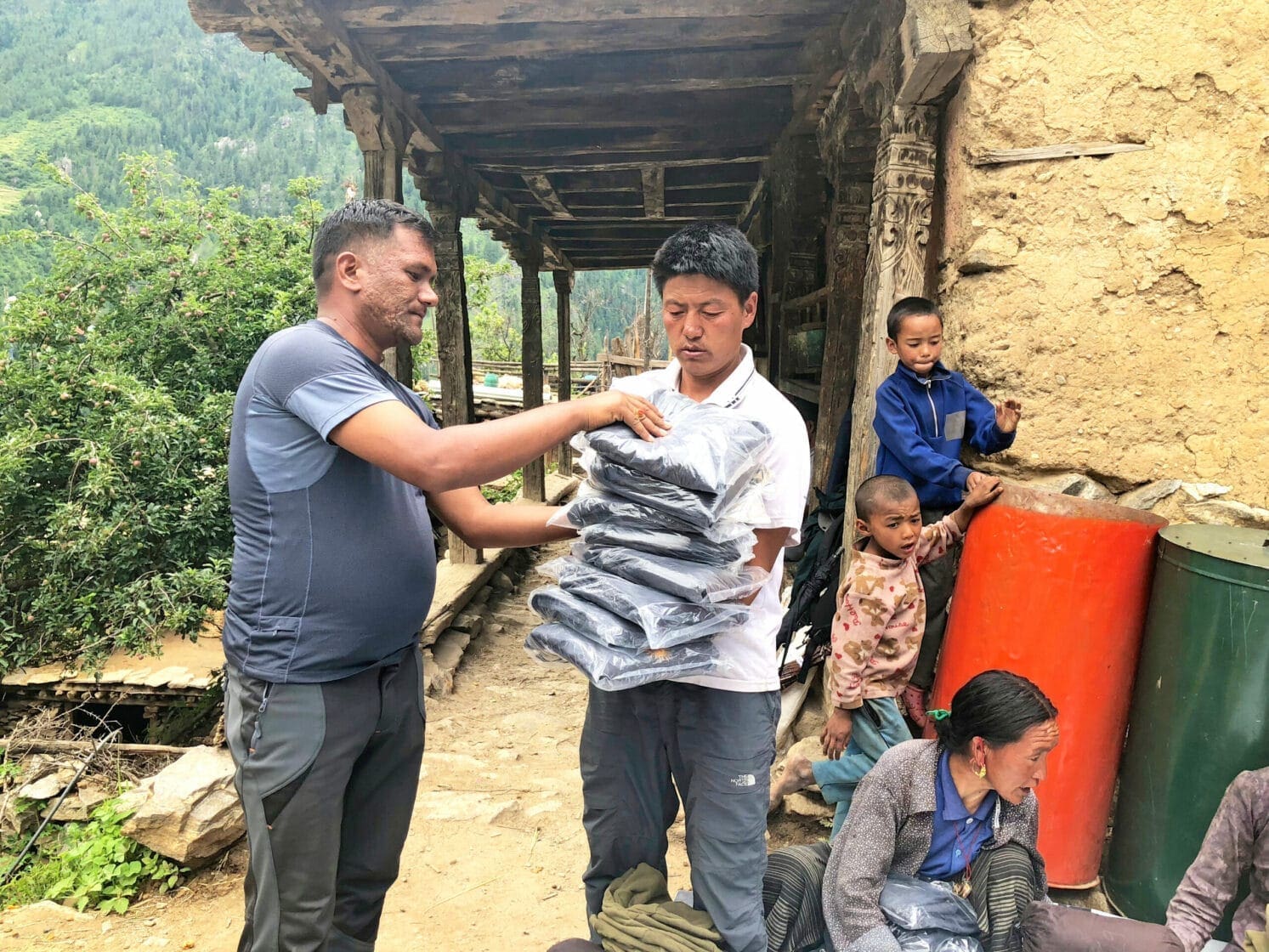

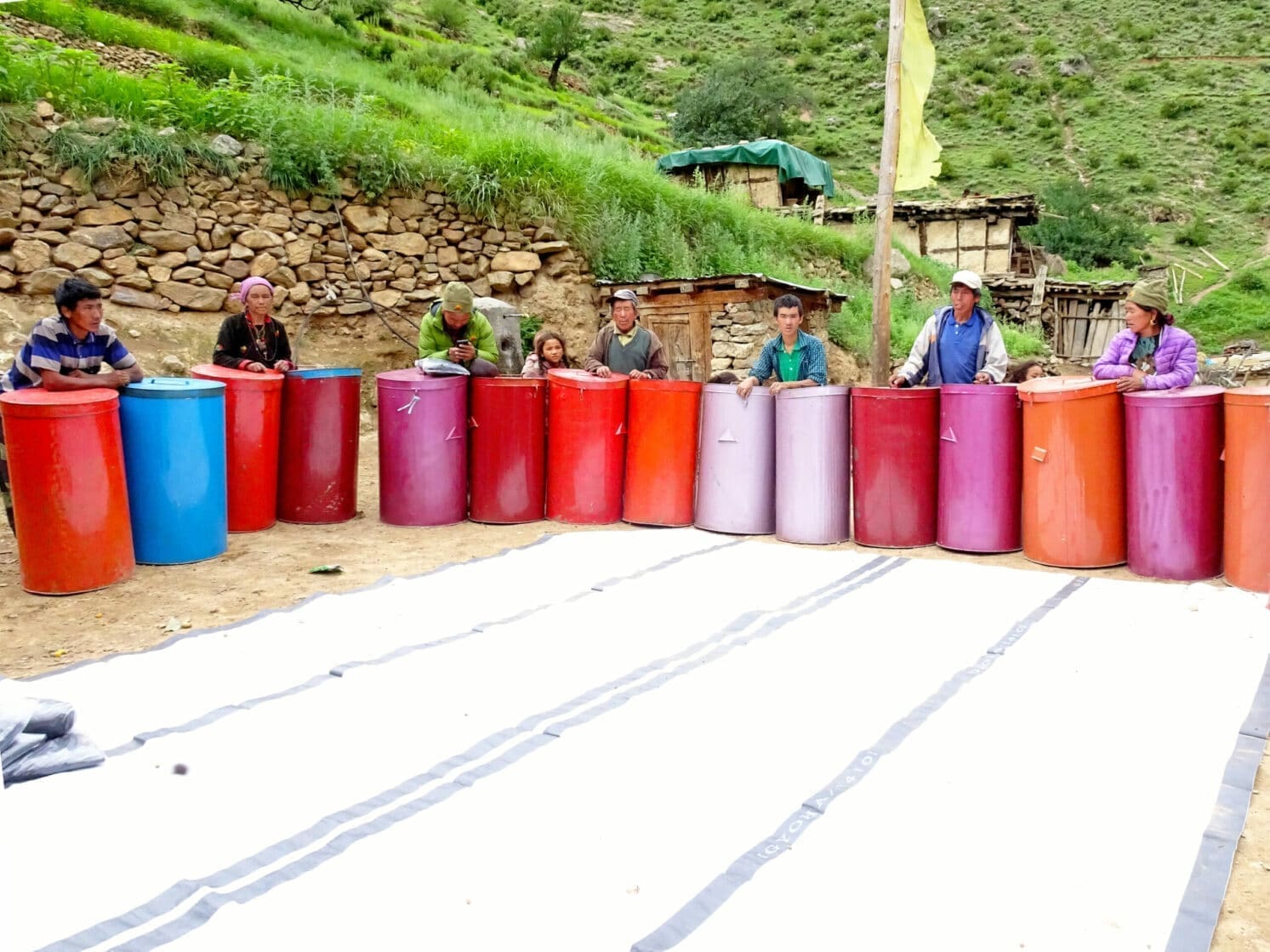

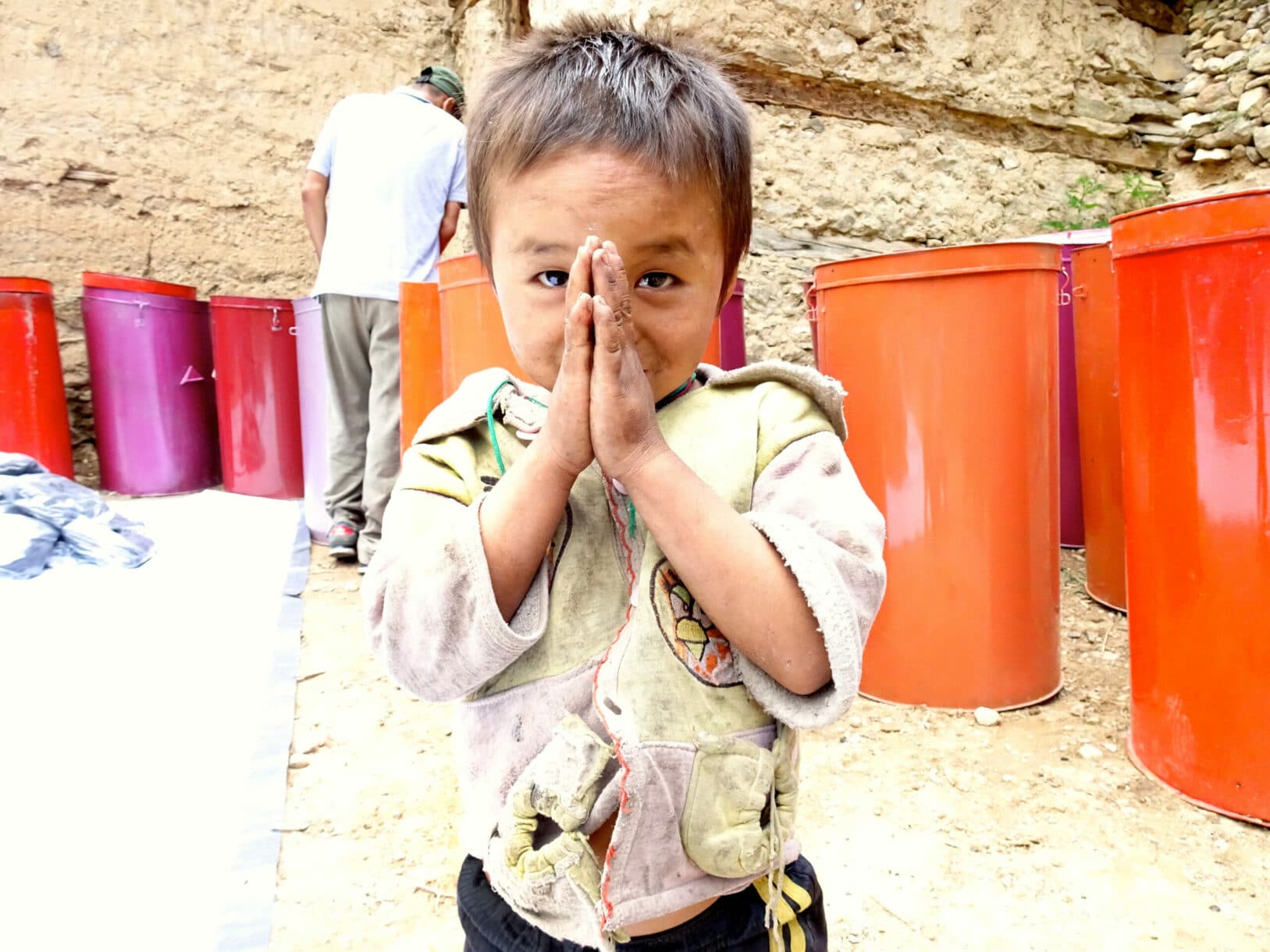

Reconstruction together
When our local employees reached the village after several days of walking with urgently needed items such as food, cookware, clothing, blankets and tarpaulins, the families were still severely traumatized. Those who had all previously lived in poverty had lost all perspective and thus all hope. How should they get through the monsoons, how through the harsh winter and how ever get back on their feet? The reconstruction could not be done on its own. The village would be wiped out and the villagers would have to migrate. Back to Life wanted to prevent that. After discussions with the authorities made it clear that no help was to be expected, we made a far-reaching decision: Together with the village community, we would rebuild the 19 houses.
Construction site full of challenges
The remote and high-altitude construction site became a logistical effort of a special magnitude: All materials had to be brought to the village on foot over high mountains, experienced construction workers, who are as good as nonexistent in the area, had to be found and recruited from other parts of Mugu . Up to 60 people worked on the construction site under the guidance of our experienced site manager. The village was bursting at the seams. 112 people who lived under plastic sheeting plus the construction workers. Those who did not work on the construction site provided meals and drinking water for the construction workers and porters. Everyone worked tirelessly.
The efforts were considered successful: after a year of construction, all 19 houses were in time for the next winter. It was the largest and most difficult construction site that Back to Life ever operated in the mountains of Nepal. In autumn 2019 the families were able to move into their new houses. Of course, every house was blessed by the lamas and the entry was accompanied by Buddhist rites.
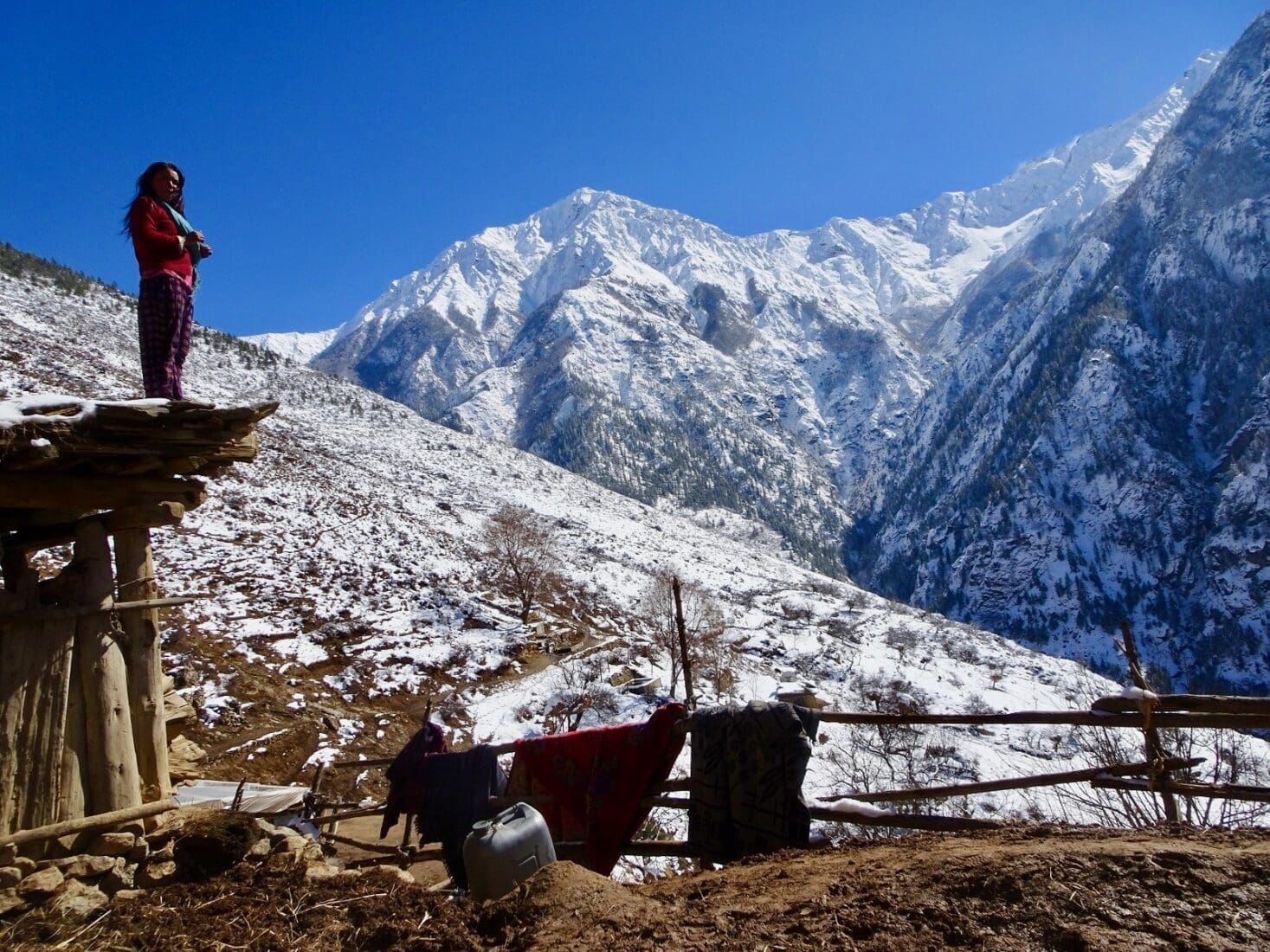

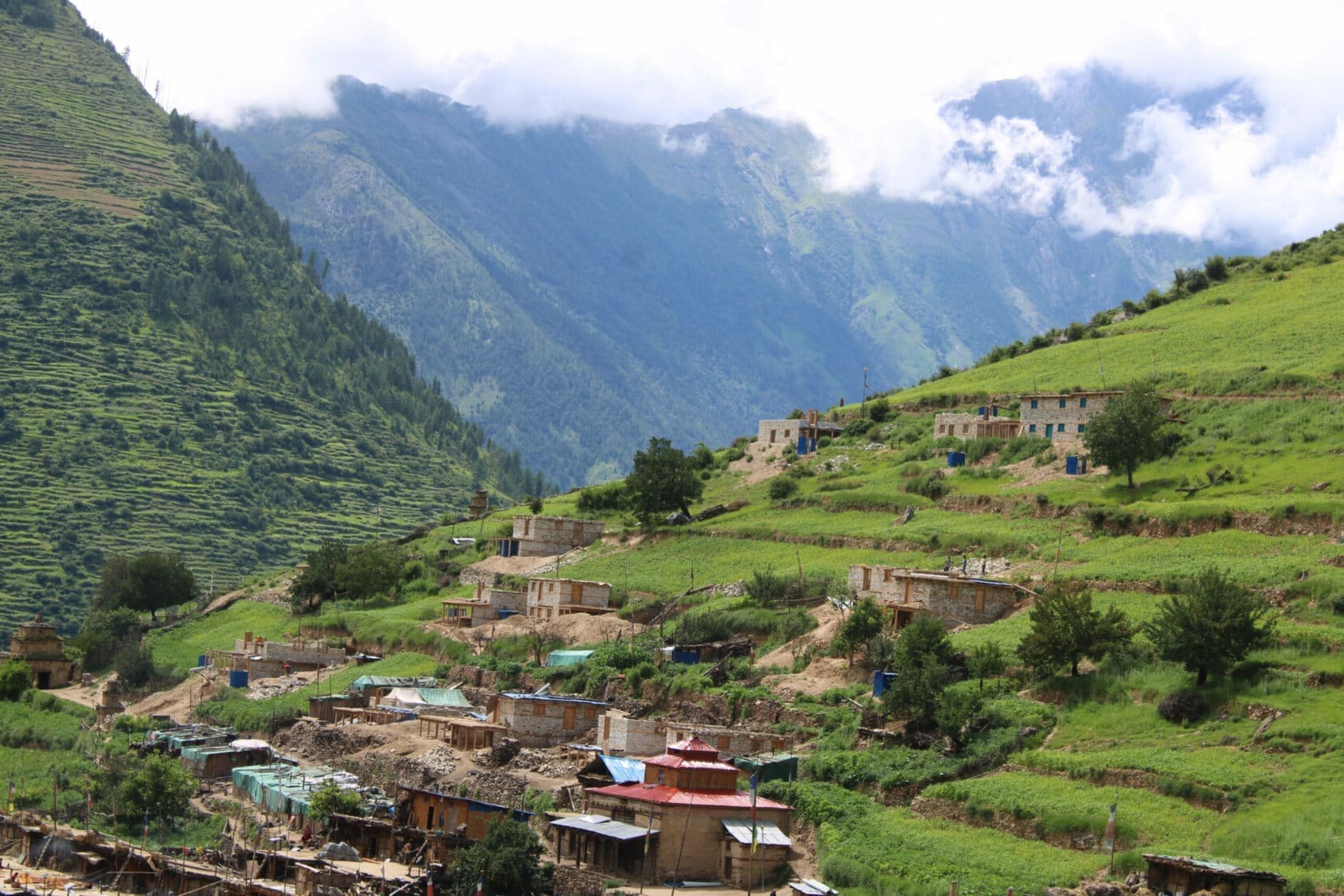

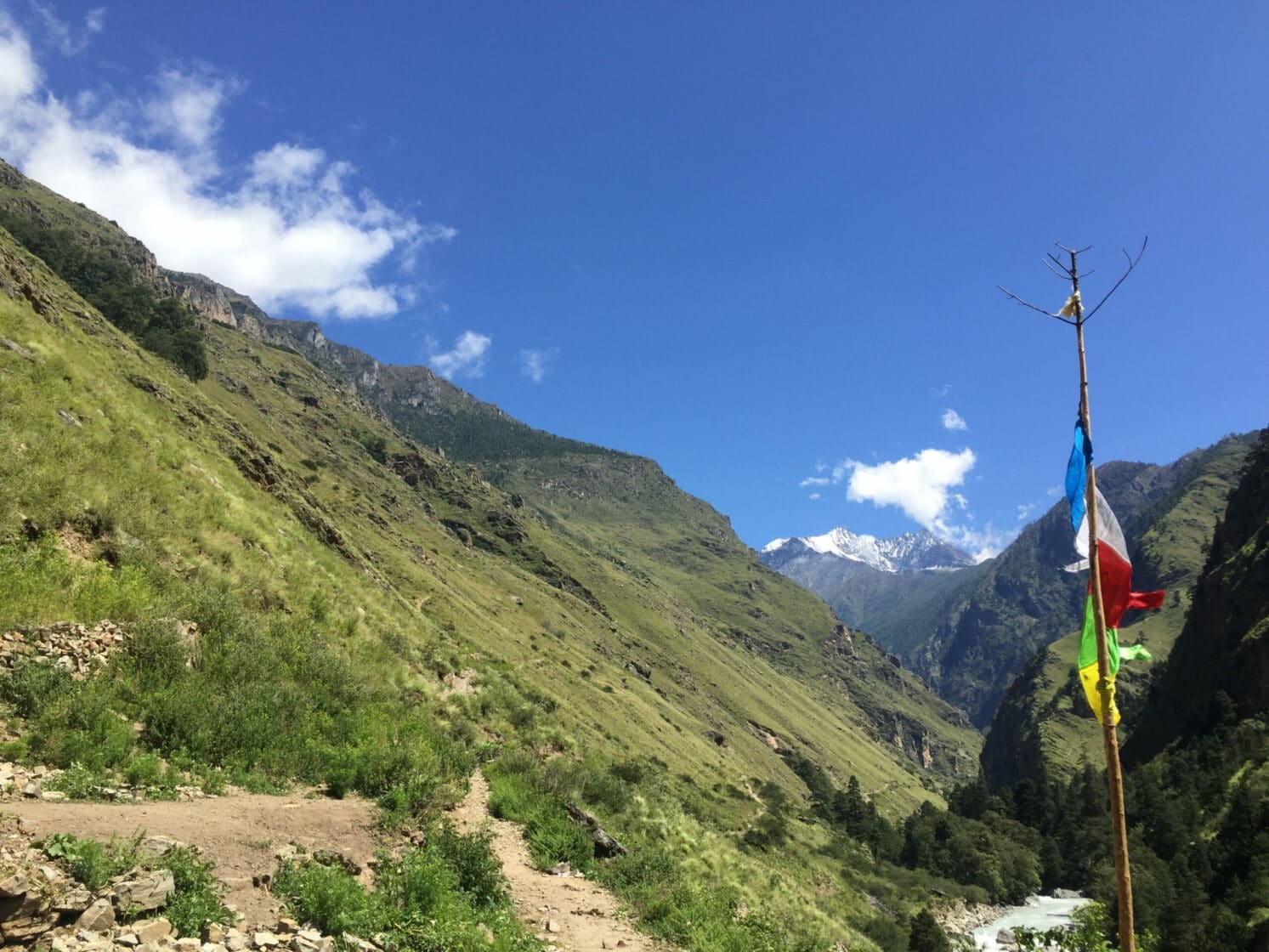
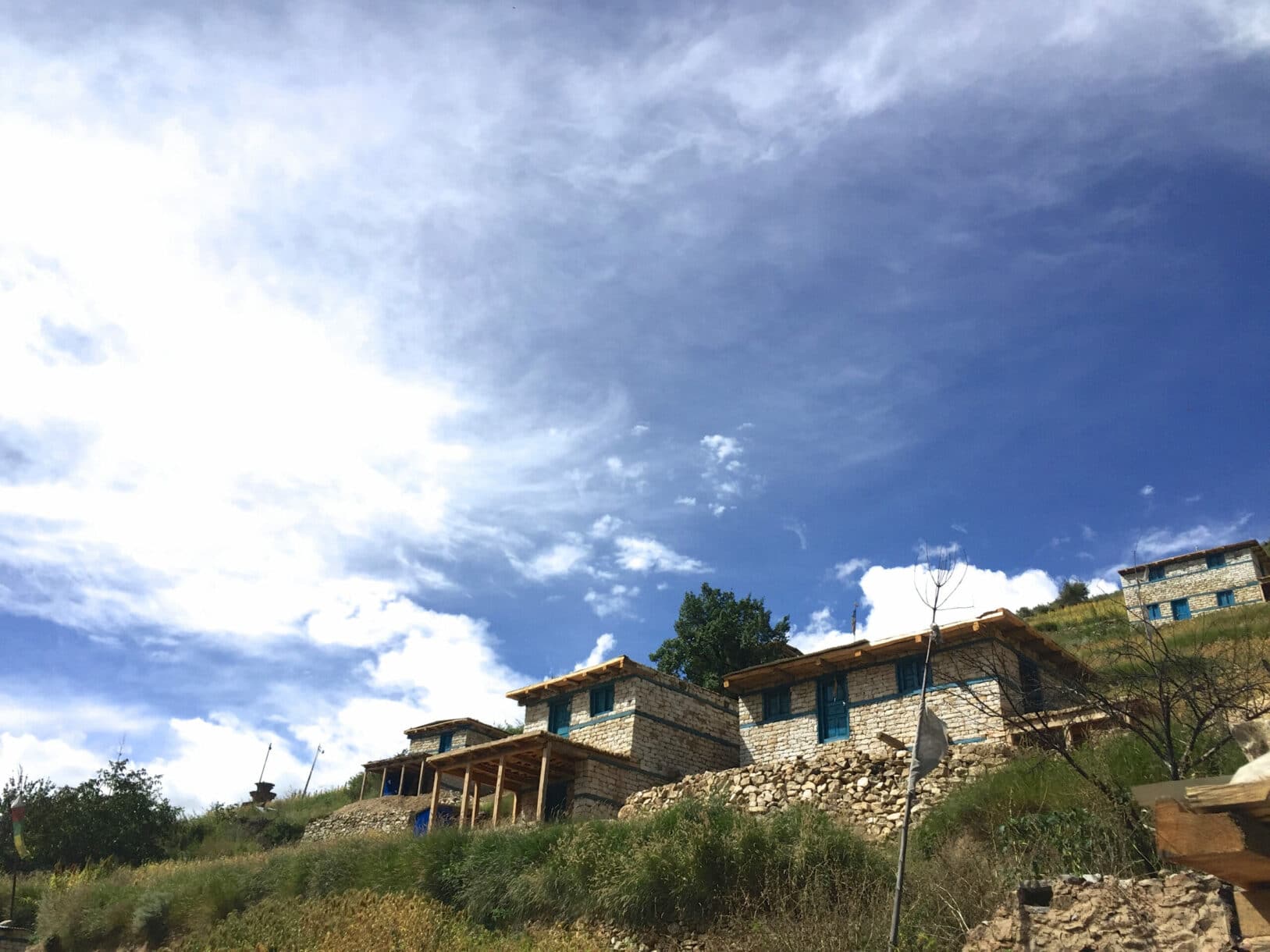
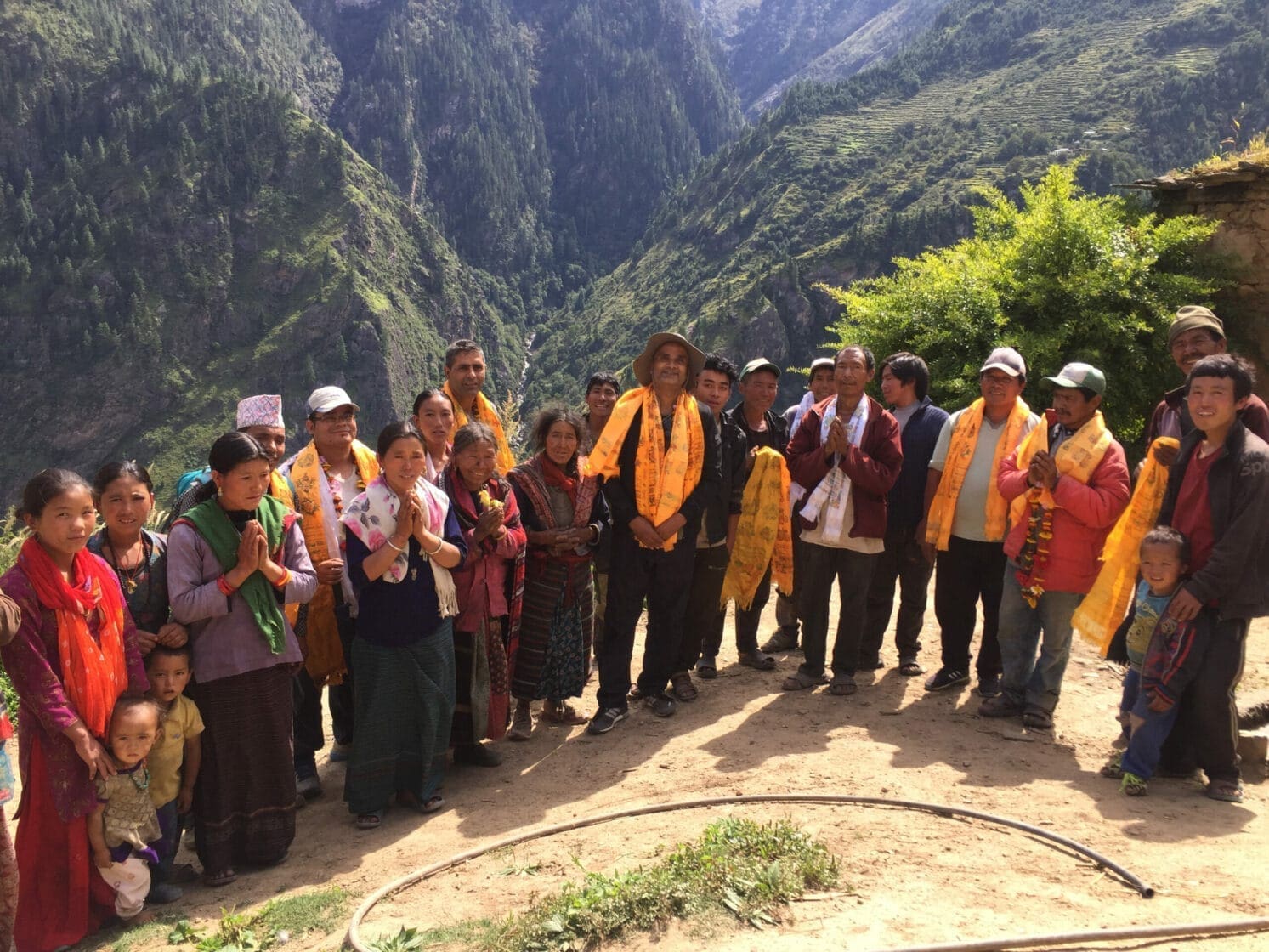



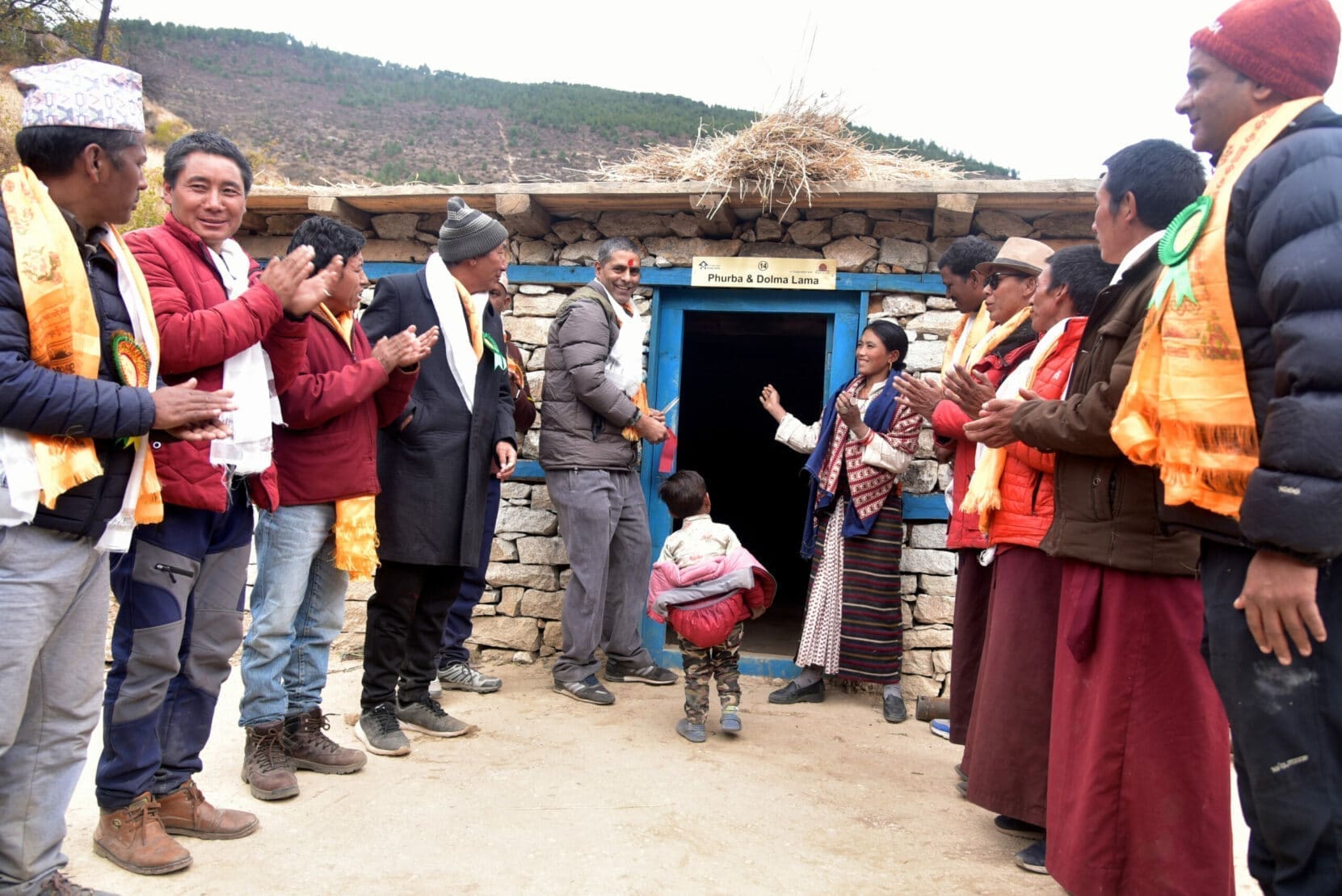

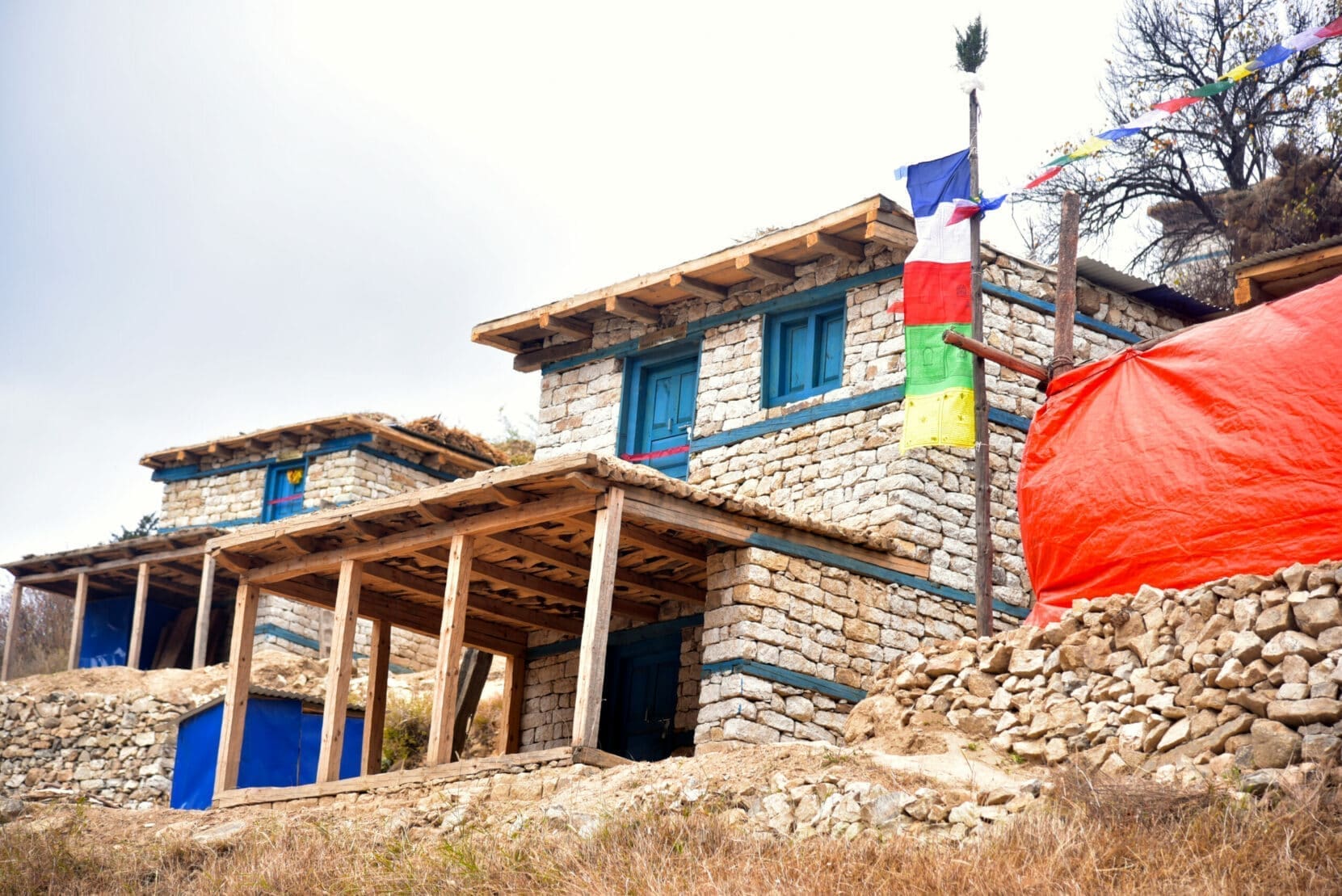

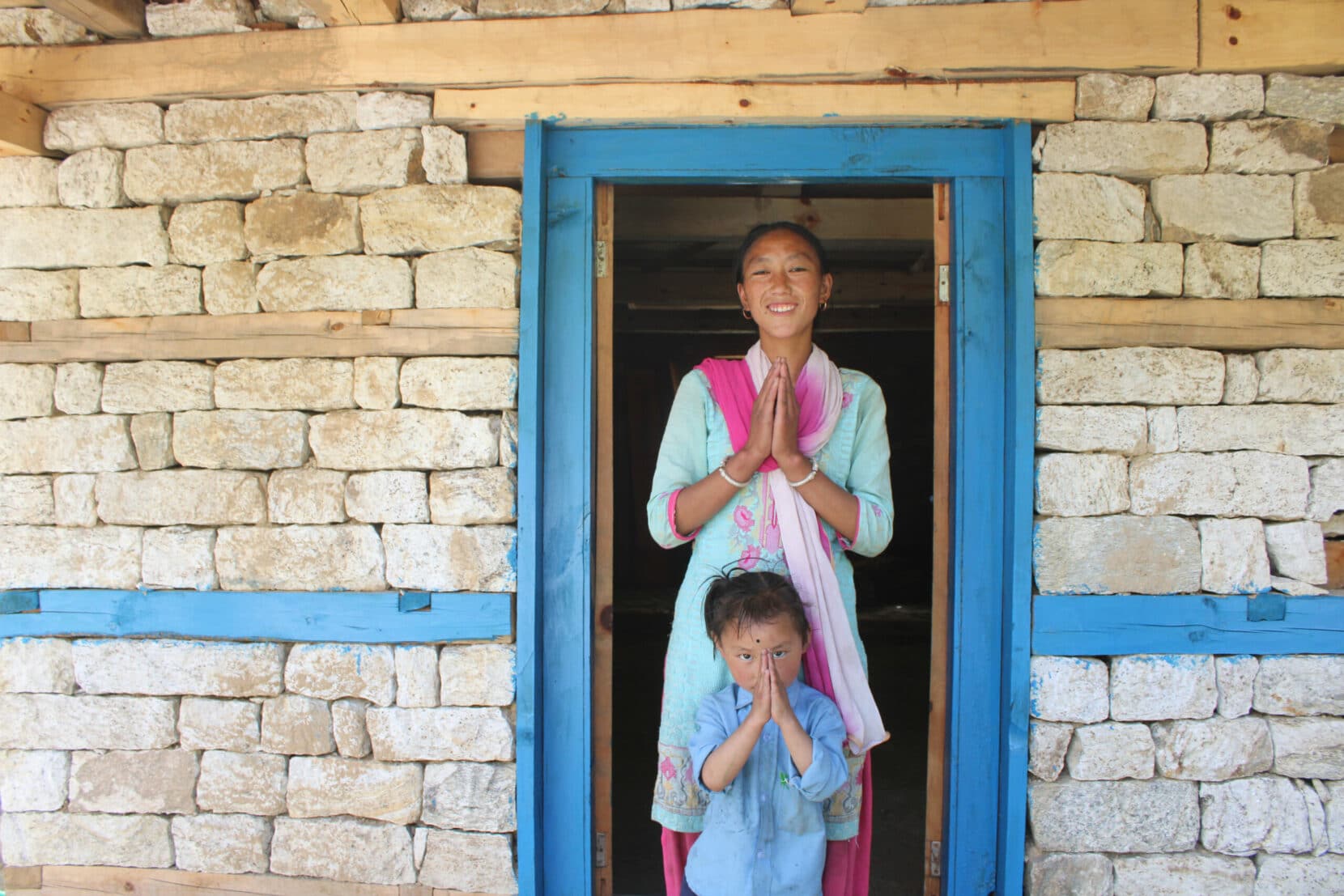

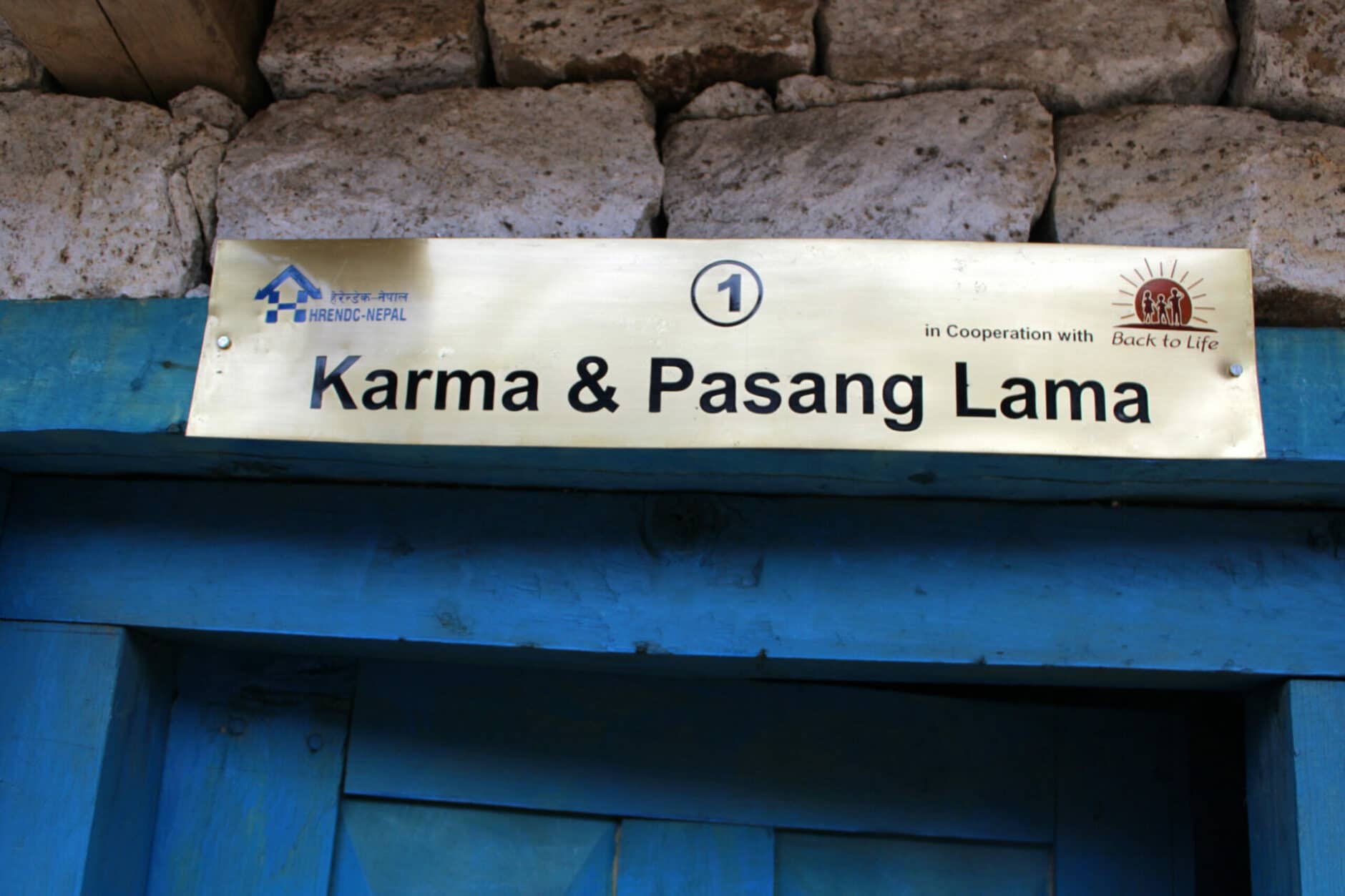

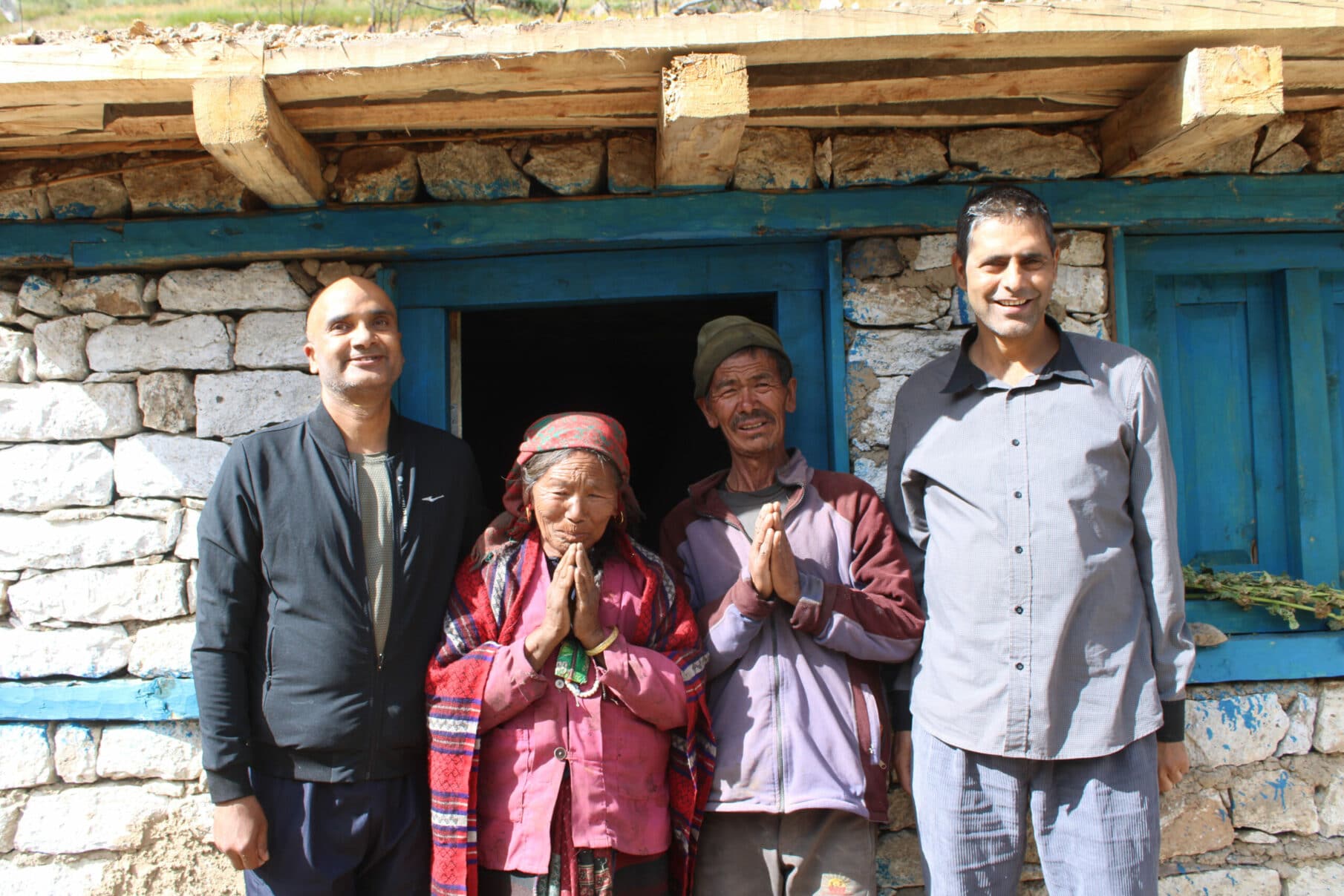
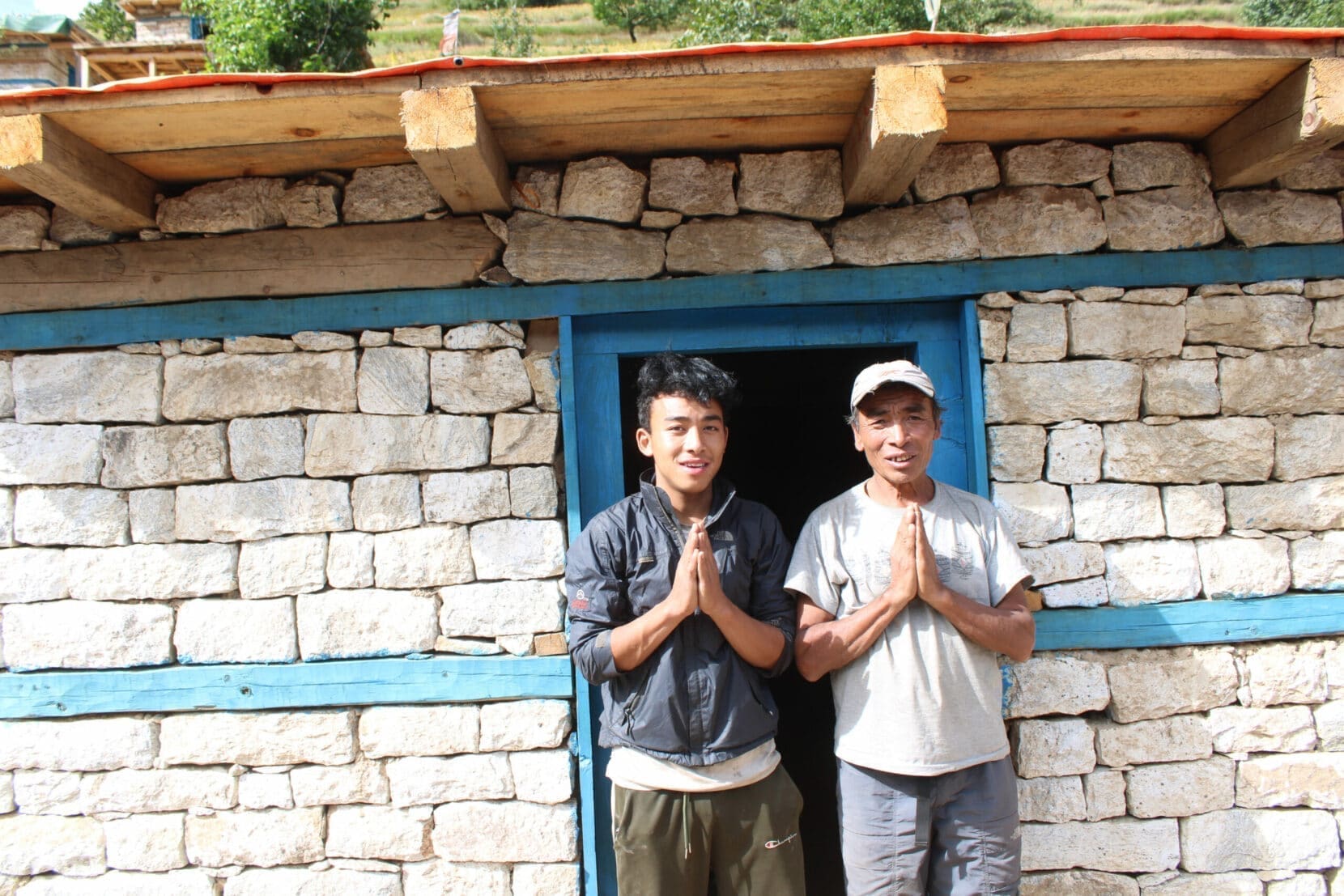

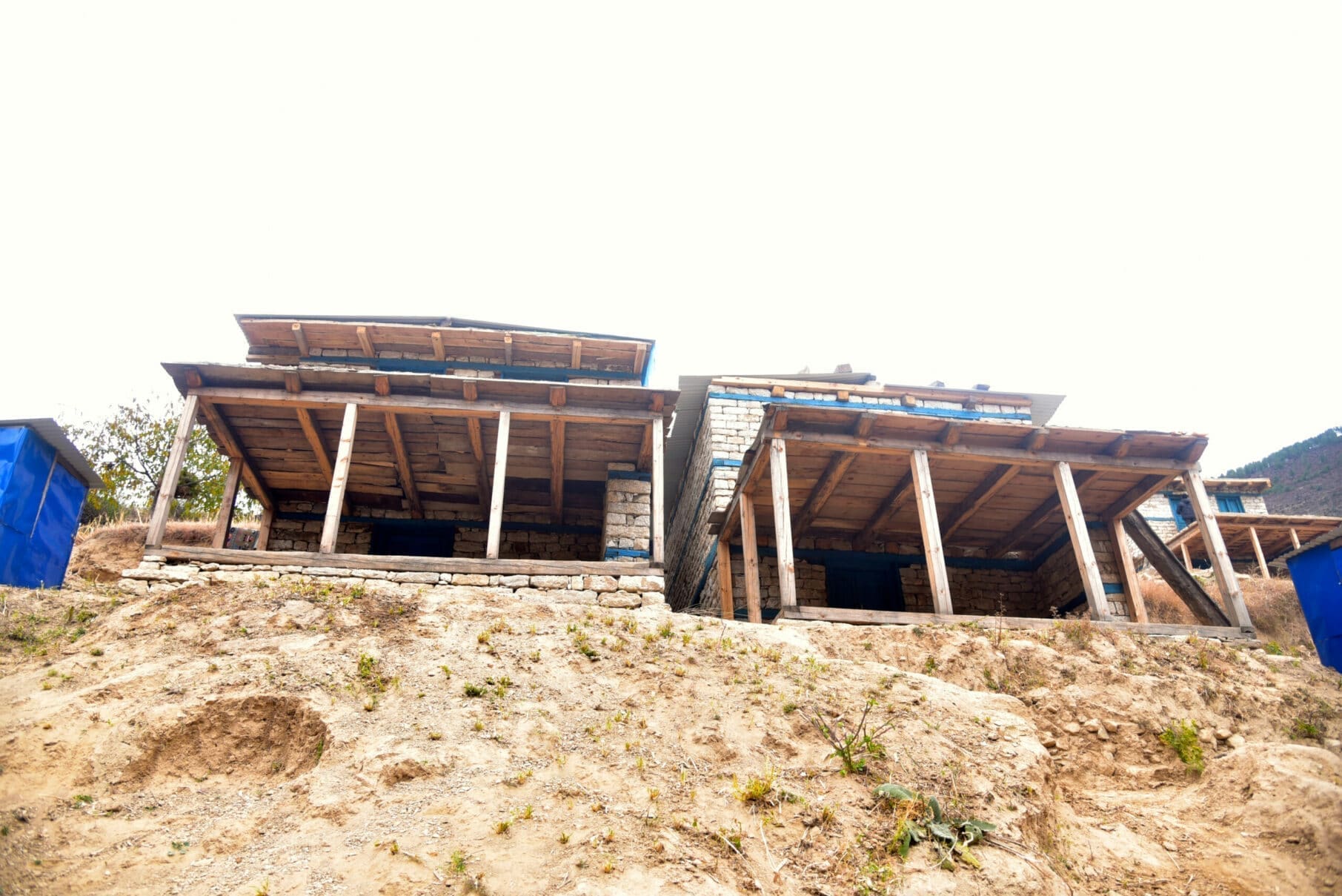

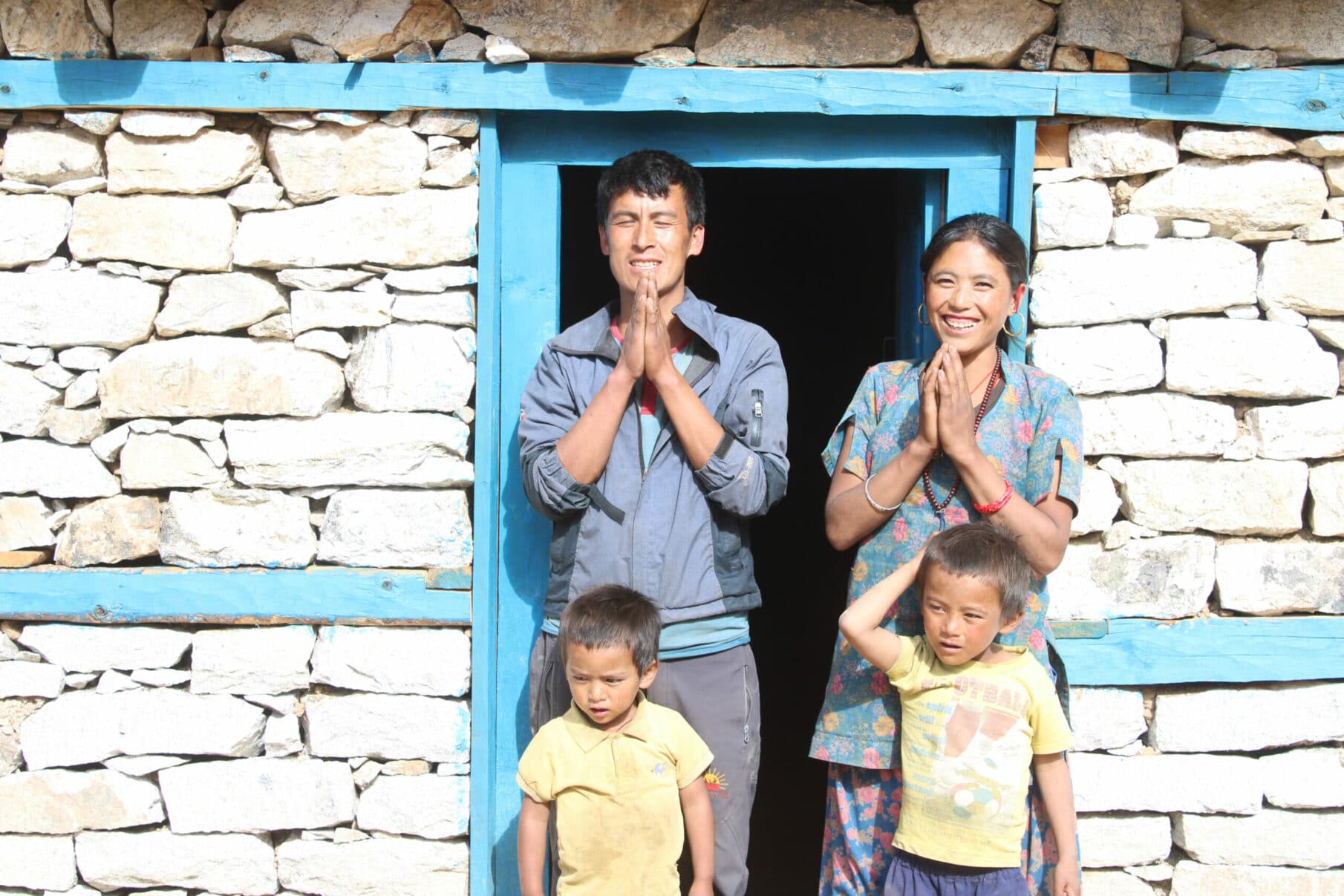

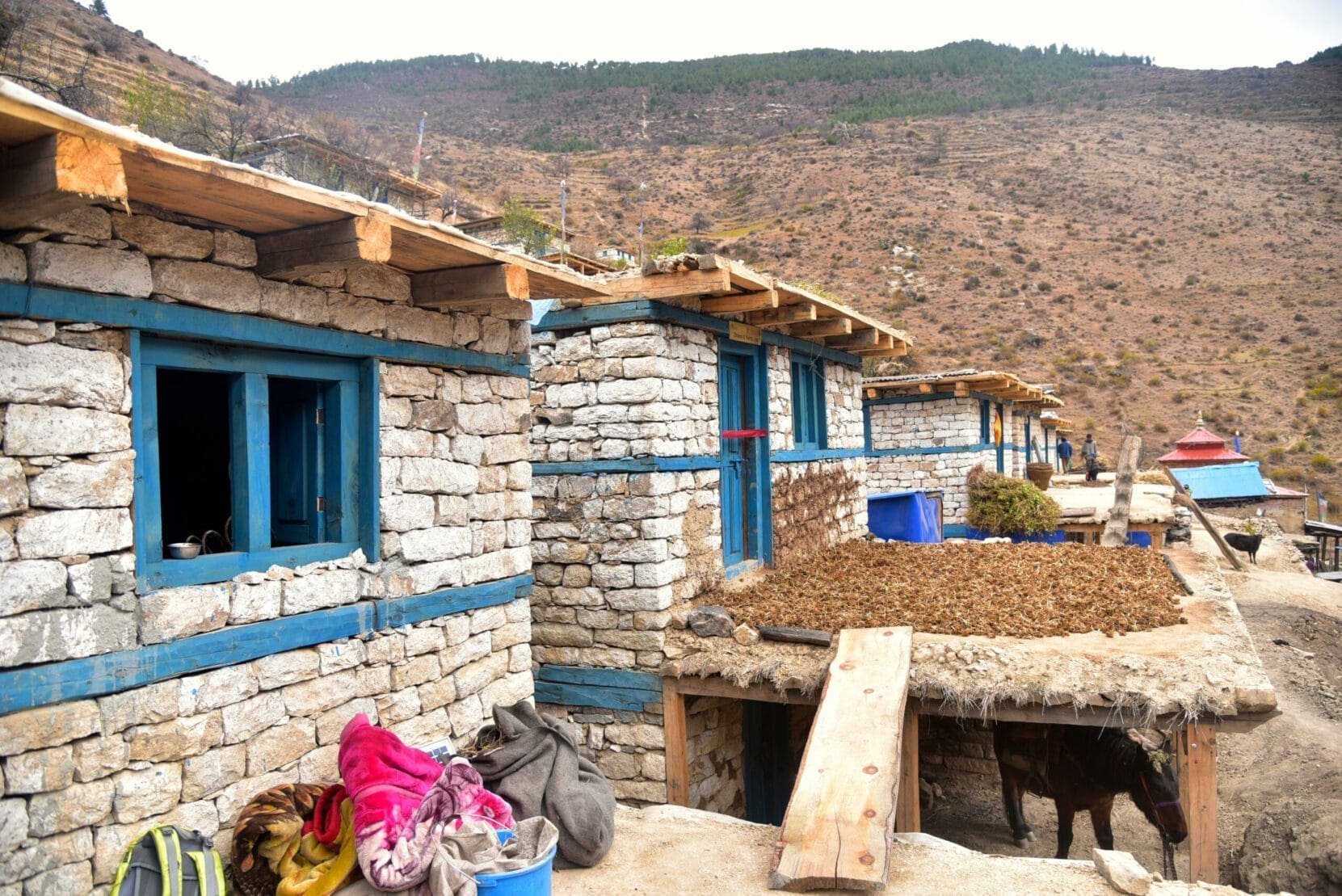

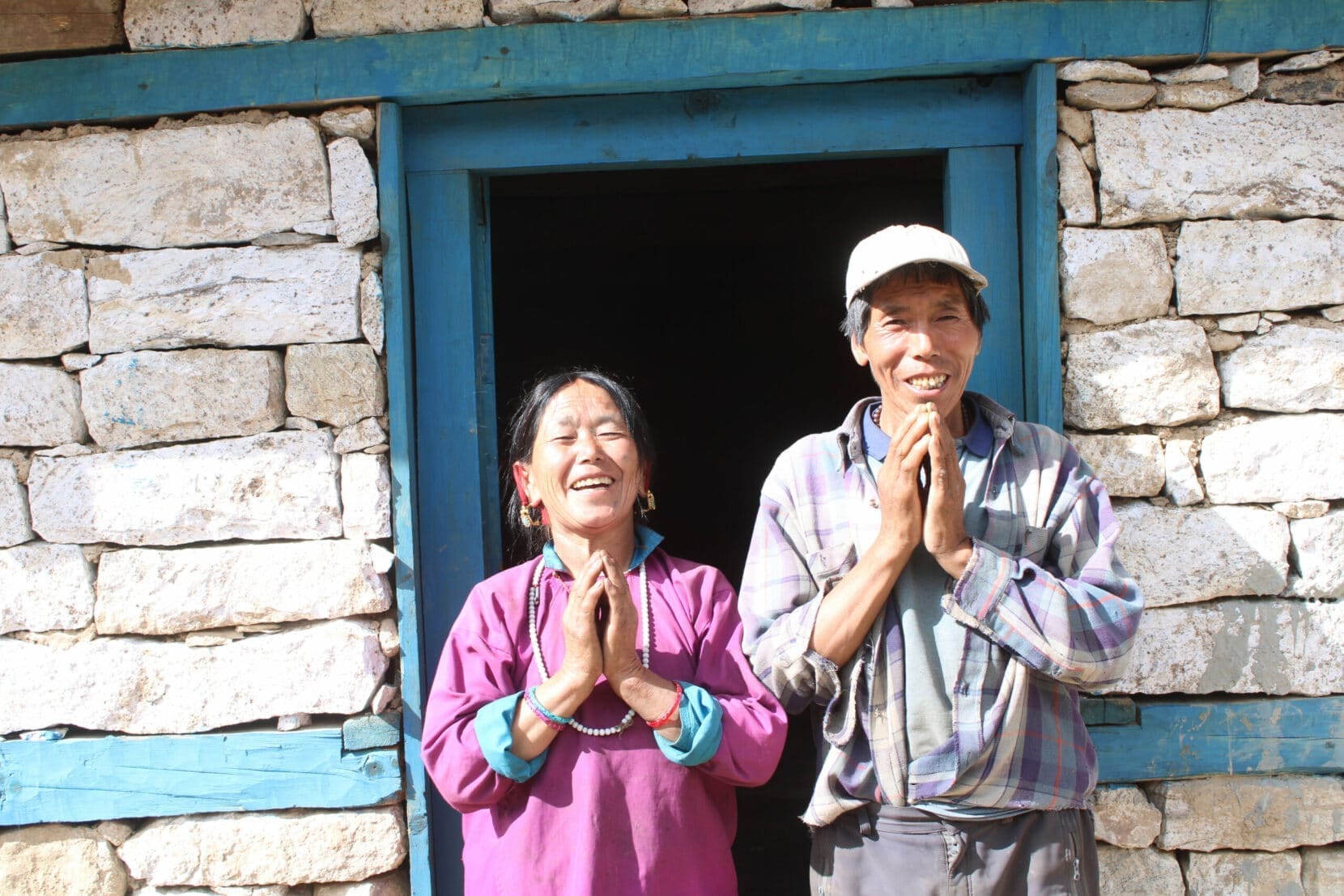

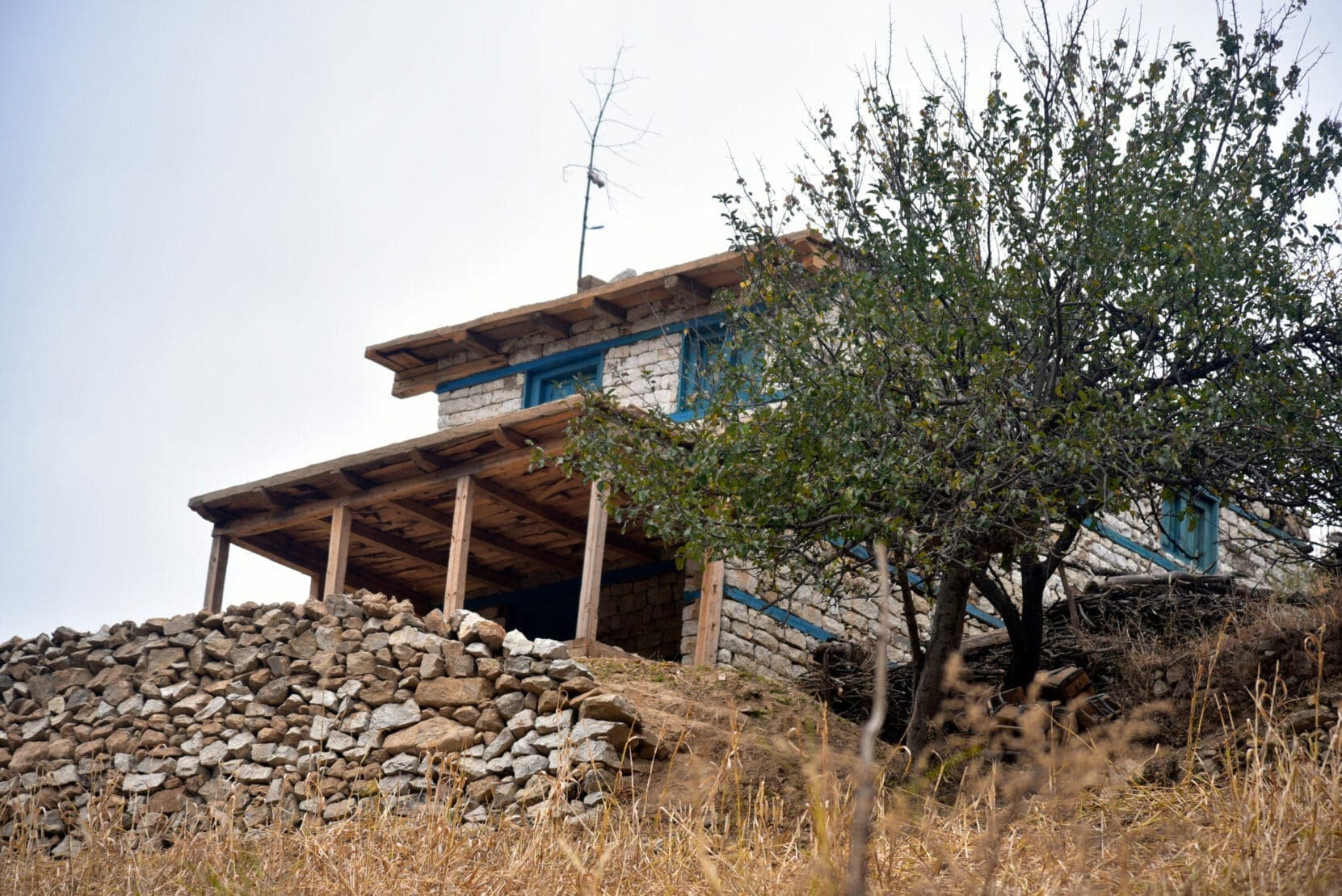

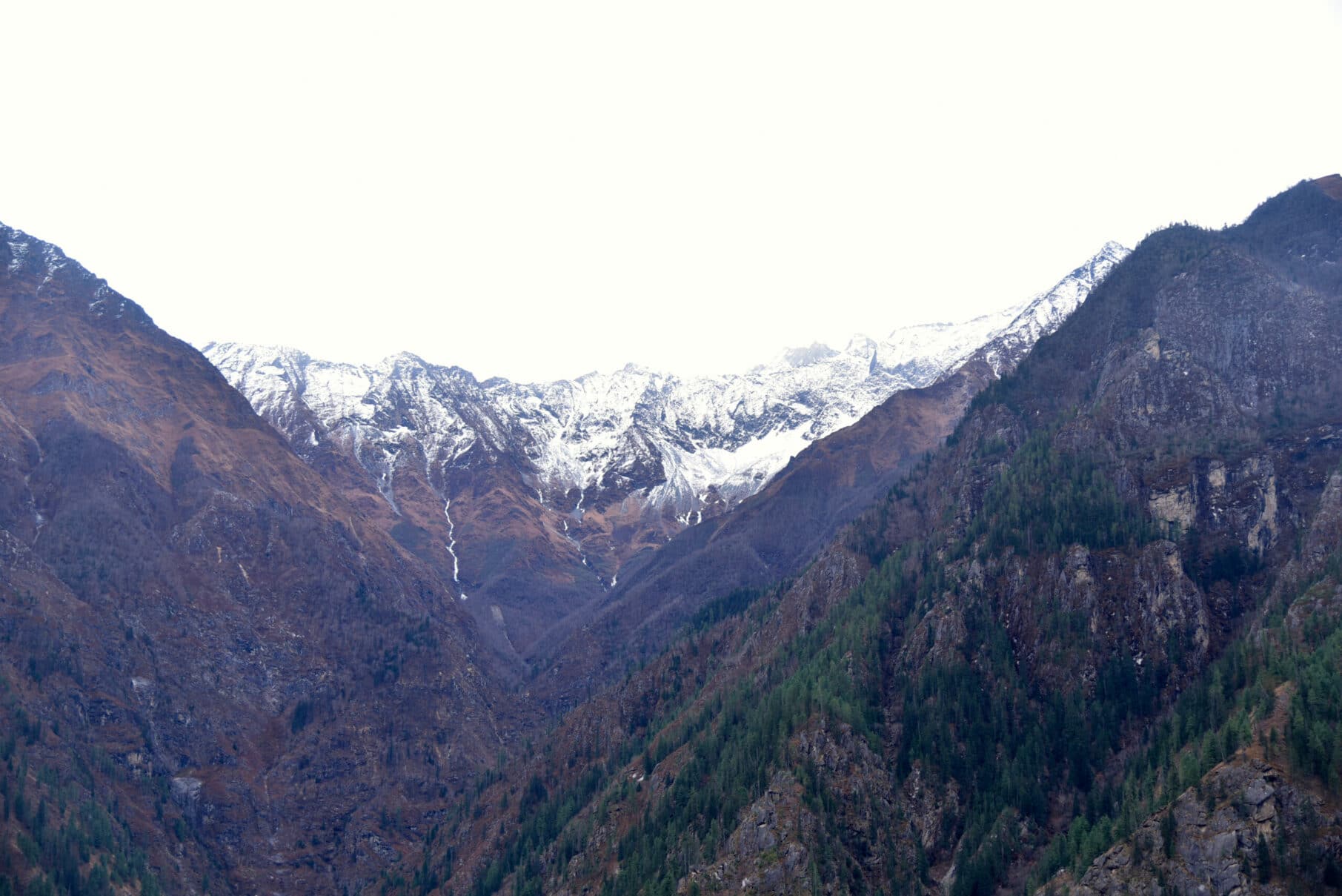

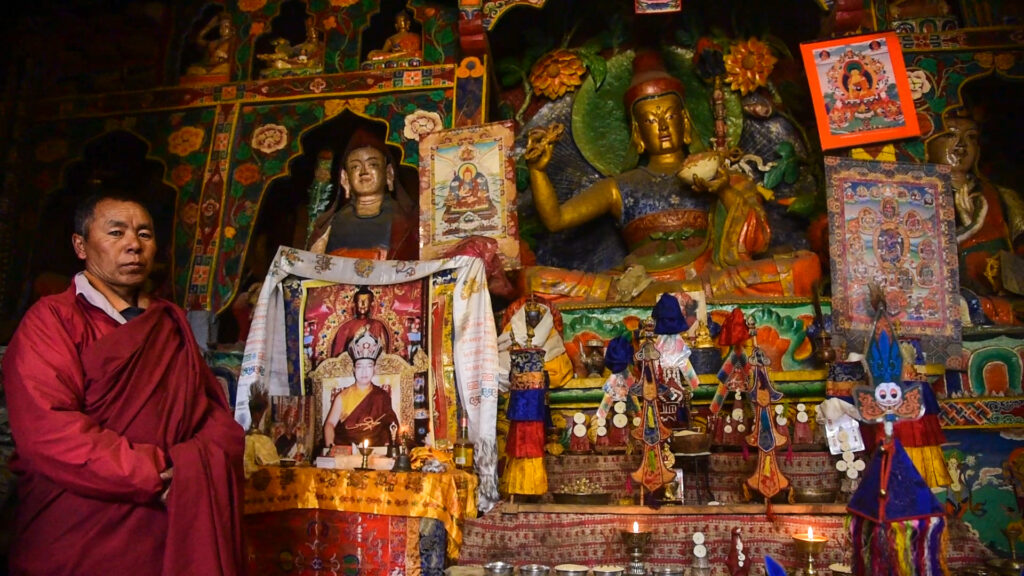
Tsogyal Lama, a monk from the village’s Buddhist monastery, summed it up as follows: “You didn’t just give our villagers a shelter. You have built strong houses by placing your own heart in every household. Buddha’s blessings for you. “
